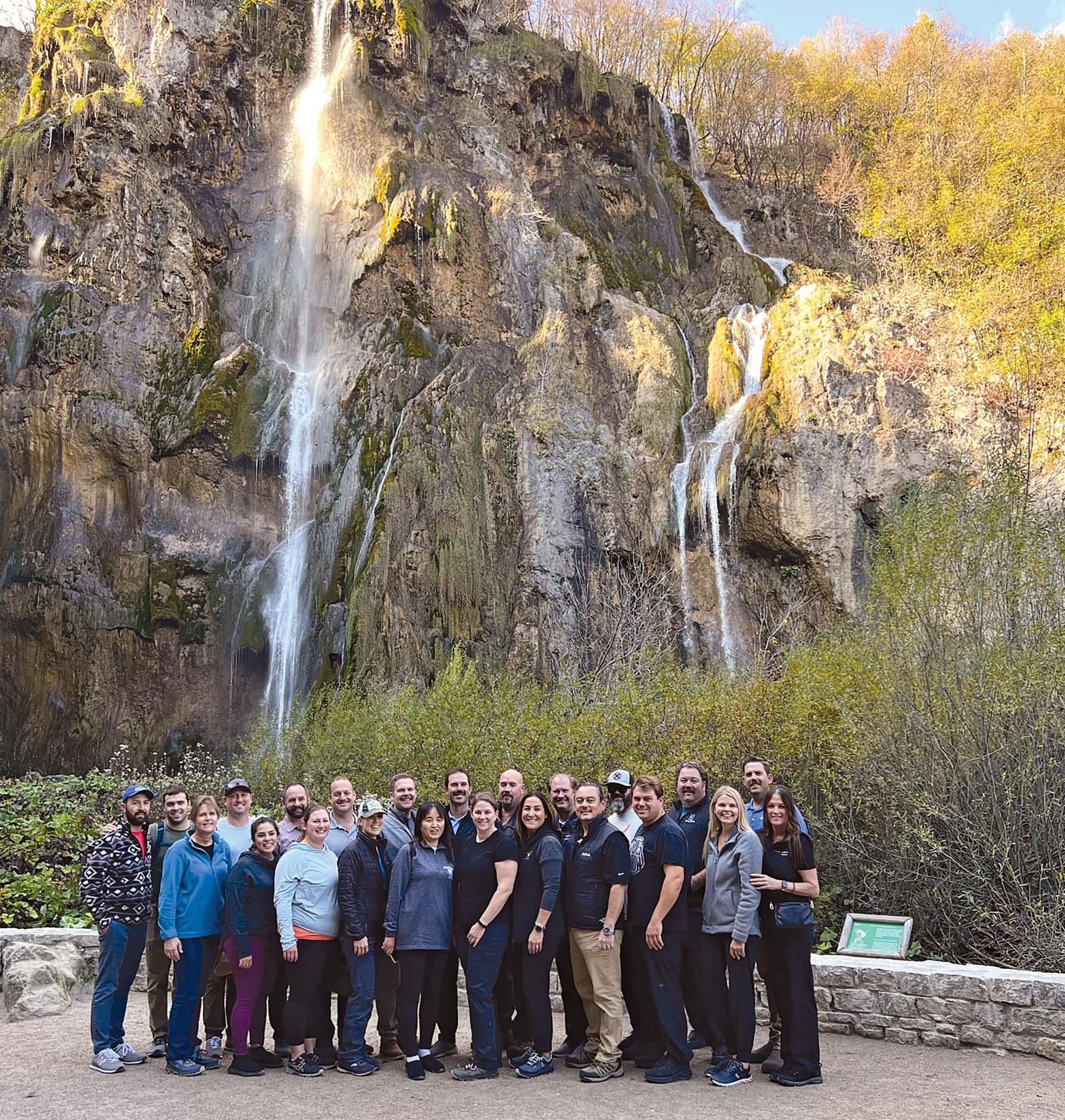

LEADERSHIP FOCUS: MEETING HALFWAY GET TO KNOW CLASS 52 ALUMNI SPOTLIGHTS Horizons THE MAGAZINE OF THE CALIFORNIA AGRICULTURAL LEADERSHIP FOUNDATION Winter 2023 Lessons Learned Class 51 International Travel Seminar
Horizons Winter 2023
Published three times per year by the California Agricultural Leadership Foundation for alumni, donors, supporters and friends.
BOARD OF DIRECTORS
CHAIR: Michael Young (35)
VICE CHAIR: Cameron Boswell (42)
SECRETARY/TREASURER: Emily Rooney (39)
Yissel Barajas (40)
Yissel Barajas (40)
Karen Caplan
Karen
Jason Cole (42)
Jason Cole
Correen Davis
Correen Davis (45)
STAFF
PRESIDENT & CEO
Dwight Ferguson
Abby Taylor-Silva (45)
Rob Goff (45)
Rob Goff (45) ff
Mike Mendes (39)
Mike Mendes
Dennis Nef
Paul Parreira (44)
Paul Parreira (44)
EXECUTIVE VICE PRESIDENT
DIRECTOR OF EDUCATION
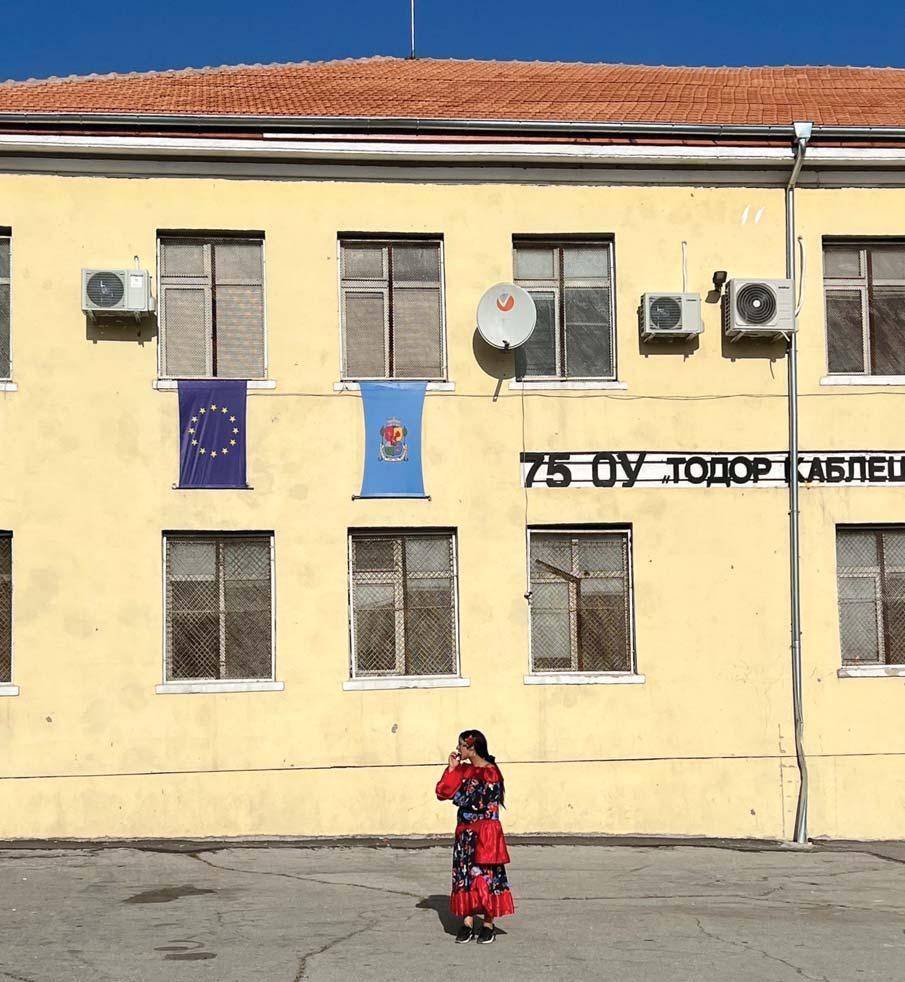
Dane White
CO-INTERIM DIRECTOR OF EDUCATION
Dr. Robert Flores
CO-INTERIM DIRECTOR OF EDUCATION
Dr. Peggy Sears Perry (9)
DONOR RELATIONS MANAGER
Kelli Coffey
FINANCIAL MANAGER
Sharon Harney
PROGRAMS MANAGER
Judy Sparacino
ALUMNI ENGAGEMENT MANAGER
Deanna van Klaveren (32)
MARKETING & COMMUNICATIONS
COORDINATOR
Meredith Rehrman Ritchie (28)
ADMINISTRATIVE ASSISTANT
Mia Mirassou
WRITER/EDITOR
Liza Robertson
DESIGN & ART DIRECTION
IE Design + Communications CONTACT
831-585-1030 • info@agleaders.org
80 Garden Court, Suite 270 • Monterey, CA 93940 www.agleaders.org
Provide address changes by contacting the office. Content in this magazine may only be reproduced with permission. Contact mritchie@agleaders.org.
The number in parentheses (#) after names indicates Ag Leadership Program class.
COVER STORY 12 / Class 51 International Seminar FOUNDATION 3 / Chair Message 4 / Foundation News PROGRAM 5 / Foundation and Program News 10 / Leadership Focus: Meeting HalfwayThe Art of Making a Conversation Safe FEATURE 6 / Get to Know Class 52 ALUMNI 16 / Alumni Council Message 17 / Alumni Updates & Fundraisers 18 / Alumni Events 21 / Alumni Learning 22 / Powerful Connections: Leaders in Cattle Ranching 24 / Alumni Spotlights 27 / Commentary: Year 1 as a Nuffield International Farming Scholar 28 / Alumni and Fellows News 29 / In Memoriam GIVING 30 / Time, Talent, Treasure 31 / Donor List Contents
Leadership and Respect
AA recent Wall Street Journal article linked leadership with respectability. It made the case that a person can’t lead unless they are respected and that “traditional standards for conduct and speech are disappearing from society, at a time when a need for them has never been higher.” The article went on to name recent leaders in business and/or public life whose effectiveness has been impacted by diminished respectability.
The article gave me several reasons to reflect on our special Ag Leadership culture and how much our curriculum emphasizes respect. Simple actions such as wearing business attire at seminars, standing when guests enter or leave a meeting room, presenting speakers with
small gifts of gratitude and sending notes of thanks or appreciation are some of the numerous ways respect is our standard way of operating. These are also reasons why our foundation and its programs have been so widely respected and effective in developing California ag industry leaders for as long as we have. I’m personally proud and grateful to be part of an organization that has identified respect as a core value, along with integrity and excellence.
Speaking of pride and gratitude, I very much appreciate this issue of Horizons. From its intro of Class 52 fellows to its alumni Q&A, spotlights and guest column (and everything in between!) its content provides great reading to everyone associated with Ag Leadership.
Presenting speakers with small gi s of gratitude and sending notes of thanks or appreciation are some of the numerous ways respect is our standard way of operating.
Gratitude for Departing Exchange Programs Consultant
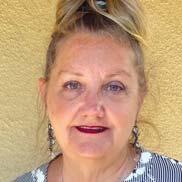
After years of service to Ag Leadership, Darlene Din (35) is leaving her role with CALF to focus on pursuing her sociology degree. Din is most noted as the supporter,
guide and cheerleader of the D.C. and California Exchange programs. The late David Martella (22) encouraged her to get involved in the exchange programs due to her background in public policy. Following her commencement in 2006, Din took on a volunteer role and in 2012 was contracted by CALF to support alumni activities and outreach. She also served as a regional alumni development officer. Over time, her role expanded as she further grew the exchange programs. During the most recent strategic plan, she helped create systems and processes that led to fully integrating the exchanges into CALF's programs.
Din's passion for the exchange program was shared with nearly 200 D.C. and California Exchange participants through
By Dwight Ferguson CALF President & CEO
As always, if I can be of any service, please contact me at dferguson@agleaders.org or 831-585-1030. ◆
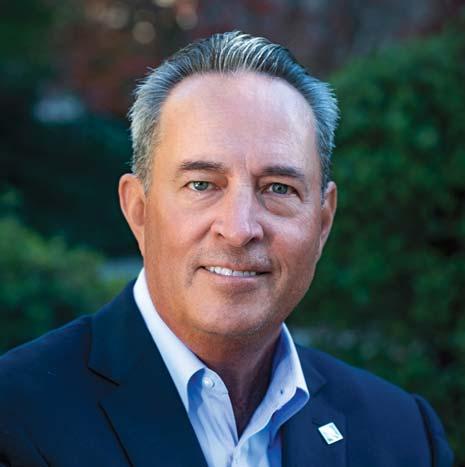
guided synthesis, conversations and discussions that threaded the curriculum throughout their travels. Her ability to build bridges between these participants and California agriculture has fostered many long-lasting relationships.
Din supported numerous exchange volunteers and created thoughtful ways for connecting with program alumni. Each connection strengthened lifelong relationships with the foundation that we continue to nurture today.
We are grateful for the time, treasure and talent that she has given the foundation and we look forward to the new opportunities that will arise for her as a lifelong learner. All the best to you, Darlene.
Foundation Message
3
Calendar
CALF
Welcomes New Coaches
The foundation in fall 2022 welcomed three new coaches to the CALF Education Team.
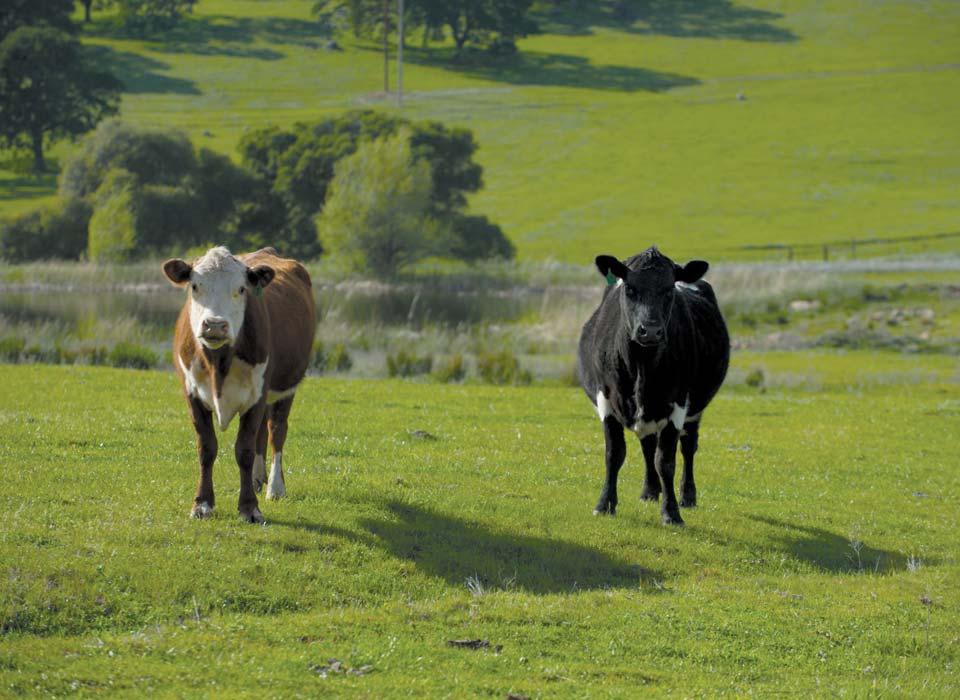
These individuals all hold certification from the International Coaching Federation. They also have extensive experience coaching mid- and upper-level professionals from various industries. Each will coach eight members of Class 52 under the general supervision of Dr. Peggy Sears Perry (9), who has served as Ag Leadership's executive coach beginning with Class 44. The foundation is excited about this new model of providing coaching support for fellows as they learn from feedback and reflection to enhance their leadership effectiveness.
ROB BALAAM is the founder and principal of Balaam Coaching LLC, a professional services firm specializing in executive leadership coaching and leadership development. He has more than 20 years of experience in organizational and leadership development and project management. He also has more than 10 years experience as an executive leadership coach. Balaam helps individuals harness their strengths and identify and develop new skills for their leadership toolboxes. His areas of interest include using evidence-based methodologies to reduce uncertainty and build confidence.
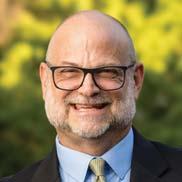
Foundation News
26−28: Class 52 Seminar, UC Davis/ Sacramento 27: Agricultural & Government Leaders Reception, Sacramento MARCH 1: Common Threads Central Valley Awards Luncheon, Clovis 1−9: Class 52 National Seminar, Minneapolis, MN & Washington, D.C. 7: D.C. Exchange Reception
3−5: Class 52 Seminar, Cal Poly Pomona 5: Common Threads North Awards Dinner, Winters 14−16: Ag Leadership All Class Reunion, Region 5 19: Class 53 Phase One Applications Due MAY 11−13: Class 52 Seminar, Cal Poly San Luis Obispo 17: Class 53 Phase Two Applications Due 4 Horizons Winter 2023 For a full list of program, foundation and regional events, visit our events website at agleaders-events.org/.
FEBRUARY
APRIL
Photo: DWR
MARLA COLLINS has more than 30 years of experience in senior sales management, operations, general management, coaching, consulting and executive leadership positions. She brings her deep business knowledge and leadership acumen to every engagement. Her passion for leadership excellence and executive experience provides a foundation of implicit understanding of the challenges leaders face. Collins enjoys helping individuals identify professional goals, challenge fresh perspectives and inspire new possibilities. Her coaching specialties include building high performing teams, improving cross functional relationships, coaching leaders as change agents and high-potential leaders.
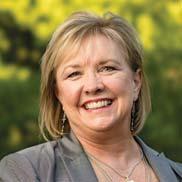
New Director of Education
Dane White became CALF’s new director of education (DOE) on Nov. 1. He is responsible for the California Agricultural Leadership Program’s curriculum – in coordination with the four partner university deans – and for delivery of the leadership content presented in the campus and travel seminars. He works closely with the core faculty from the four campuses, as well as the CALF president and CEO. He will also support other CALF educational programs.
we have a director of education who has a passion for education and leadership and is committed to growing leaders who make a difference,” said CALF Board Programs Committee Chair Correen Davis (45). “I look forward to supporting Dane as he thoughtfully stewards our program into the future.”
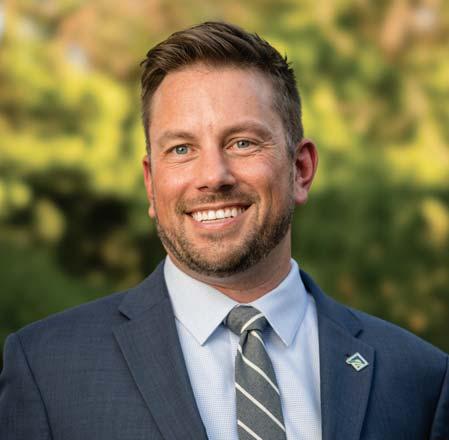
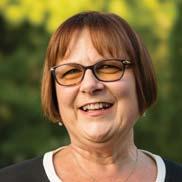
White has a background in empowering leadership, learning design and instructional practice. A former high school agriculture teacher, he developed curricula that are used in more than 200 schools in California. He previously consulted to the California Department of Education and most recently worked for Vivayic Inc., a learning solutions company. White earned his bachelor’s and master’s degrees in agricultural education from California State University, Chico.
White is a self-described student of learning philosophy, leadership principles and educational theory who seeks to learn from and leverage unique experiences in order to do good in the world.
TINA SHAW is an organizational development professional and coach with a passion for ensuring that learning transfers to improved performance and business results. For more than 20 years, she has helped individuals and organizations across several industries maximize their effectiveness. She leads with optimism, enjoys inspiring a “can-do” spirit in others and has a reputation for helping people achieve success through coaching and learning facilitation. Shaw recognizes the talents and potential in others and partners with them to discover how they can leverage their strengths. ◆
White is responsible for carrying out the mission of the foundation to continue to deliver innovative and transformational leadership content. Through the program's exceptional curriculum, fellows become lifelong leaders who act as a catalyst for a vibrant agricultural community and make a significant difference in the agricultural industry, their businesses, communities and families.
“As an alumna of the program, I am acutely aware of how important it is that
“I love nothing more than developing people, and to do so as part of this program is a dream,” said White. “I’m enjoying investing in the members of our cohorts, our alumni and our team in order to ultimately make a discernible impact on California agriculture.”
CALF is working with Dr. Peggy Sears Perry (9) and Dr. Robert Flores (Honorary Fellow), who have served as co-interim directors of education since May 2021, to ensure program continuity during the DOE transition period. ◆
APPLICATIONS NOW AVAILABLE
Phase one applications are due April 19 and phase two applications are due May 17. We need your help identifying and mentoring candidates for the program. Please start thinking about and talking with friends and colleagues who would be ideal candidates. You can find downloadable PDFs about the program and readiness indicators for candidates at agleaders.org/programs/about/. ◆
Foundation & Program News 5
Get to Know
MICHELLE ALLEN-ZIEGLER / San Clemente
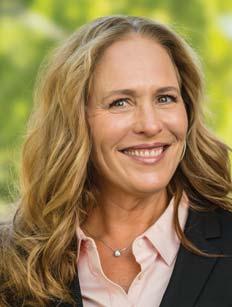
Michelle is the national account manager for Pactiv Evergreen, North America’s largest manufacturer and distributor of food packaging. She is responsible for the West Coast, managing agriculture for California, Mexico and Canada and selling sustainable packaging using renewable materials. She develops and maintains relationships with diverse retailers, growers and distributors, creating supply chain synergies.
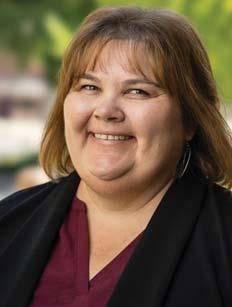
CORNELIO BLANCO / Oxnard
Cornelio is a farm manager for Rio Farms LLC, one of the largest multi-generational family farms that grows onions, celery, cabbage and peppers throughout California. He manages day-to-day operations, including scheduling and managing ground preparation, drip installation, transplanting, fertility and irrigation, pesticide applications and harvest. He is also a pest control adviser.
JEFF BORUM / Modesto
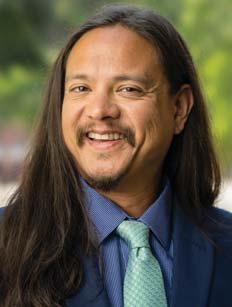
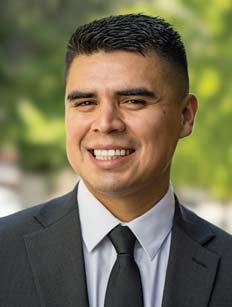
Jeff is the soil health coordinator and agricultural programs manager for East Stanislaus Resource Conservation District, which provides local conservation for 984 square miles east of the San Joaquin River and assists and facilitates conservation-based efforts at the statewide level. He travels across the state consulting on conservation-based practices and coordinating research with communities.
GRANT CREMERS / Salinas
Grant is the general manager for statewide vineyard operations and coastal winery operations for Delicato Family Wines, one of California’s largest family-owned wineries that is also nearly 100 years old. He supports the operations teams to develop annual work plans, budgets and long-term capital plans. He has responsibilities for 3,200 acres of vineyards in three counties and two wineries and is a pest control adviser.
KASEY DeATLEY / Chico
Kasey is an associate professor of animal and range science in the California State University, Chico College of Agriculture, where she teaches animal science courses, conducts research, advises student clubs and the farm beef unit. Her courses focus on livestock production and range management. She is also a managing partner of Two Doc’s Land and Cattle, her family’s cow-calf ranching operation.
SETH FIACK / Glenn
Seth is the majority owner/partner of Fiack Family Farms, a fifth-generation family farm producing rice and walnuts in Northern California’s Glenn County. As majority owner/partner, he oversees all aspects of the day-to-day operations and managerial aspects of the farm.
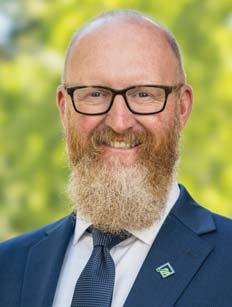
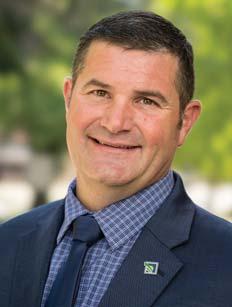
6
Class 52 fellows were inaugurated into the program on Oct. 6, 2022.
Horizons Winter 2023 Feature
Photos: Tomas Ovalle
ANDREW GENASCI / Oakdale
Andrew is a field representative for the California Farm Bureau, California’s largest general agriculture nonprofit membership and advocacy organization that represents farmers and ranchers at the county, state and federal level. He works with 14 county Farm Bureau boards, providing resources, developing innovative solutions and promoting membership.
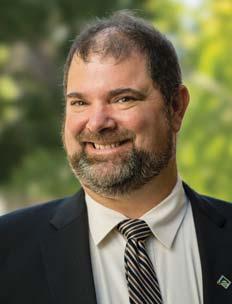
AMANDA GORTER / Paso Robles
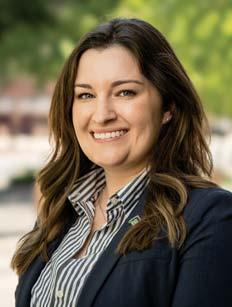
Amanda is a winemaker for O’Neill Vintners & Distillers, one of the fastest-growing wine and spirits producers in California producing national, private label and bulk wine and spirits. Based at the Robert Hall Winery, she leads national and private label coastal wine brands. She plays a large role in Central Coast research and development, including regenerative viticulture and climate conscious wine style research.
CHRISTOPHER GREER / Visalia
Christopher is the assistant agricultural commissioner/sealer of weights and measures for Tulare County, a local government agency that enforces laws and regulations pertaining to agriculture and weights and measures in the county. He assists with the day-to-day administration of the department, including managing and directing his management team, budget and overall operations of 80+ employees.
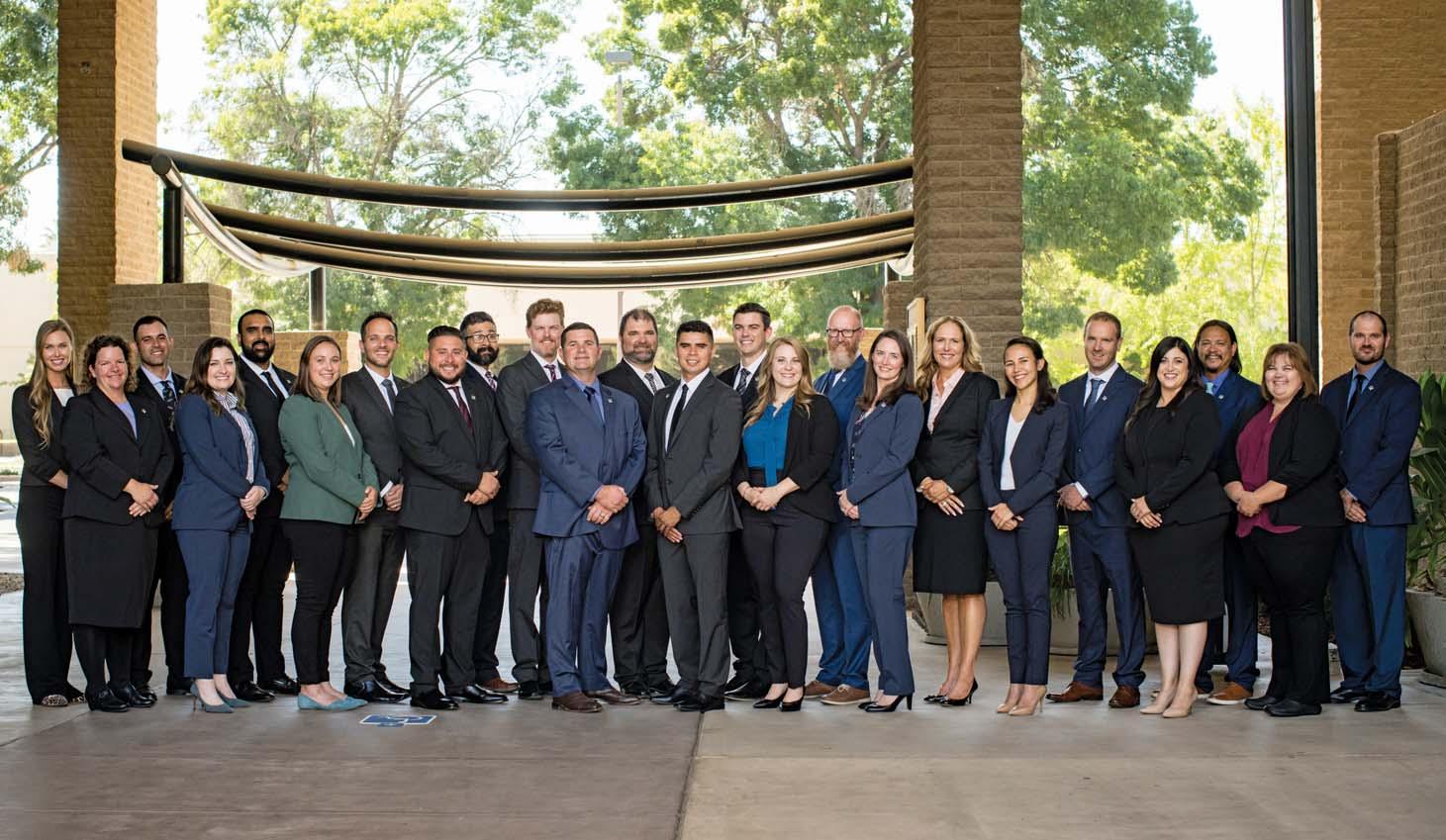
JEFF INIGUEZ / Bakersfield
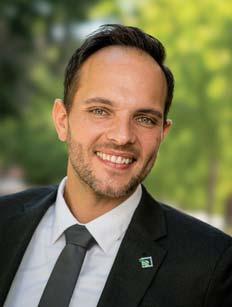
Jeff is an irrigation manager for Wonderful Orchards, a vertically integrated farming company that produces almonds, pistachios and pomegranates across five counties in the Central Valley. He is responsible for overseeing irrigation operations across 27,000 acres of almonds and pistachios in three counties and seven irrigation districts. He is also a certified crop advisor.
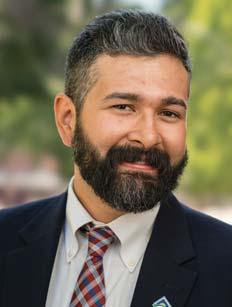
7
Feature CONTINUED ⇒
MALLVINDER KAHAL / Madera
Mallvinder is a second-generation owner/partner of Atlas Almonds, a vertically integrated almond growing and packing operation in Madera County. He manages the day-to-day operations as a farm manager and serves as general manager of the packing operation. His responsibilities are a balance of planning farm operations and returning to the processing facility to manage grower relations, sales and export activities.
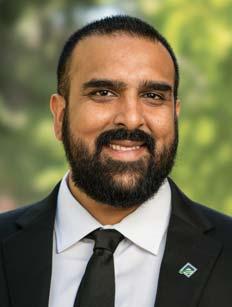
ANNA NAKAMURA KNIGHT / Redlands
Anna is a fifth-generation farmer and the director of Old Grove Orange, California’s oldest and largest farm to school food hub that connects local farmers to a network of more than 30 school districts in the Los Angeles Basin. She manages the day-to-day operations of the food hub and Old Grove’s relationships with its partner school districts and partner farmers.
ARIMA KOZINA / Sacramento
Arima is the deputy secretary for administration and finance at the California Department of Food and Agriculture, the state organization charged with promoting and protecting a safe, healthy food supply in California. She is the department lead for operational management, process improvement efforts and strategic planning.
SEAN LANDBERG / Turlock
Sean is a vineyard manager for Gallo Vineyards Inc., overseeing the production and day-to-day operations of wine grapes that feed into multiple wine portfolios of E. & J. Gallo, the world’s largest family-owned and operated winery. He manages logistics of seasonal hand and mechanical labor activities and continues to develop valuable experience in all aspects of grape growing and vineyard management.
JEANNETTE McCLURE / Paso Robles
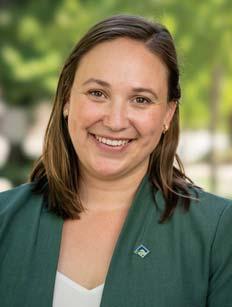
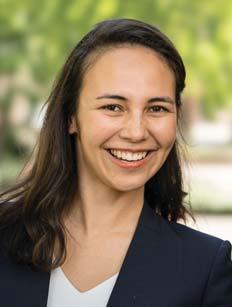
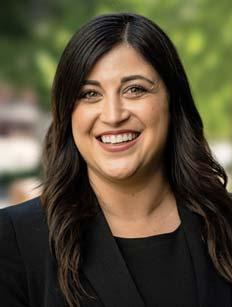
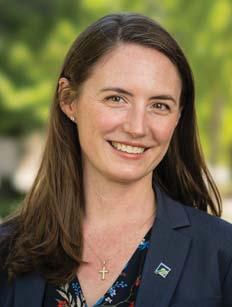
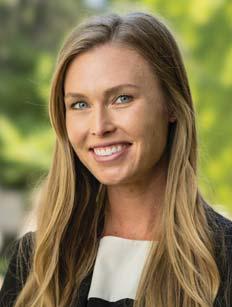
Jeannette is a senior relationship manager at Rabo AgriFinance, a leading financial services provider for U.S. farmers and ranchers. She is responsible for business development and customer management on the Central Coast, working with customers to provide loans and services that enable their businesses to take advantage of market opportunities and mitigate risk. She was raised on her family’s fifth-generation dairy.
CHRIS McGLOTHLIN / Fresno
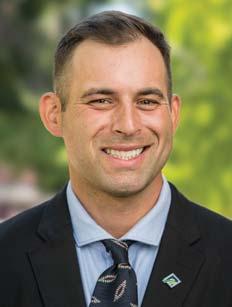

Chris is the director of technical services for the California Cotton Ginners and Growers Association and the Western Agricultural Processors Association. For both associations, he assists with various regulatory and legislative compliance issues such as land use, water quality permitting, air district permitting, grants and incentives applications, equipment registration compliance and other issues.
ANNE MEGARO / Davis
Anne is the government and community relations director for the University of California Agriculture and Natural Resources (UC ANR), the extension arm of UC which engages in research, education and public service through programs including UC Cooperative Extension and 4-H Youth Development. She connects with government and community leaders to share the good works of UC ANR.
DIANA MELERO / Fresno
Diana is the director of communications for the California Farmworker Foundation, a nonprofit serving to support and improve the quality of life of California farmworkers. She oversees internal and external communication for the foundation. She shares how the organization works together to aid the industry, its communities and essential workers who play a vital part in the food supply.
Feature 8 Horizons Winter 2023
DANNY MURILLO / Madera
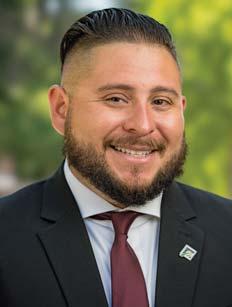
Danny is a farm supervisor for Agriland Farming Company, a full-service farm management firm in the San Joaquin Valley that is one of the nation’s largest nut growers. He manages almonds and pistachios and has been involved in the management of citrus blocks. He is also involved in coordinating pistachio harvest for Agriland and outside clients in multiple counties in the Central Valley.
DAVID OGILVIE / Clarksburg
David is the lead viticulturist for Wilson Farms, his fourth-generation farm that grows wine grapes. He is also the director of production for Ogilvie Merwin Vintners, which focuses on making premium wines from Clarksburg. In his roles, he follows the grape from planting to bottling, leads the farming team managing vineyards, manages winemaking and champions sustainability using the latest ag technology.
REID ROBINSON / Davis
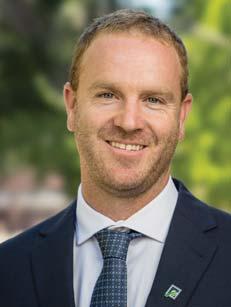
Reid is the chief executive officer of Sierra Gold Nurseries, a family-owned fruit and nut tree nursery serving growers since 1951. It is one of the largest suppliers of almond, pistachio and walnut trees in California, all of which are grown out of its Yuba City location. He oversees all aspects of the business, from production and sales to finances, human resources and research and development.
JACYLYN STOKES / Lodi
Jacylyn is a fourth-generation grape grower and co-owner and director of development of Stokes Vineyards, a marketing and sales company that supplies wine grapes to buyers throughout the U.S. She also manages finances, sales, water reporting, pesticide and sustainability for Stokes Brothers Farms, which owns and manages more than 2,000 acres of grapes, walnuts, almonds and cherries.
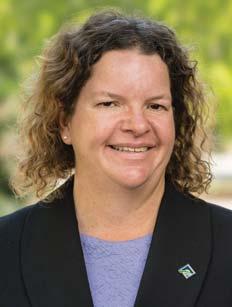

KATEY TAYLOR / Napa
Katey is the regional viticulturist in Napa and Sonoma counties for Constellation Brands – Wine and Spirits Division, a high-end wine and spirits company that creates distinctive brands and products. As part of the Viticulture Center of Excellence team, she collaborates with internal and external networks across California, fostering sustainable farming practices and organics. She and her husband have a small, diversified fruit orchard in Yuba County.
JOHN WIERSMA / Turlock
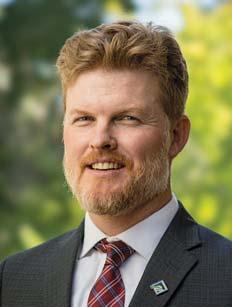
John is the general manager of San Luis Canal Company, a mutual water company providing water service to approximately 45,000 acres of prime agricultural land and 6,000 acres of wetlands in the Central Valley. He oversees the day-to-day operations, assists the board in establishing and implementing policy, protects its valuable water rights and carries out its strategic vision.

9 Feature
A Meeting Halfway: The Art of Making a Conversation Safe
As I write this article in my office on the UC Davis campus, I can hear protesters outside my window. Earlier this week (late November 2022), nearly 48,000 graduate students and other research scholars walked off the job at all of the UC campuses asking for enough pay for rent in our university towns, access to university transit and health benefits that can extend to their children and spouses.
I am hopeful the issue will be resolved by the time this article is published. This strike has me thinking about the missed opportunities for productive conversations that would have avoided this situation and many other conflicts that we all have at work and home.
In the California Agricultural Leadership Program we talk about “being in the box.” Indeed, when people – or even organizations – are in the box, our stories keep us from working together towards a solution.
Here are just some of the stories that people on both sides of this labor issue are telling themselves:
Striking students: “We are the labor force of the university, but the university doesn’t care about us enough to provide the basic benefits they provide other employees.”
University administration: “The striking students are being unreasonable in their demands and need to change them before we will speak to them.”
Professors: “I was once a graduate student and I didn’t make much money. What goes around, comes around.”
I find myself being caught in a range of stories. Sometimes I am the victim saying “I can’t believe both sides are doing this to me. Now I am doing the work of my eight student employees and no one has even asked if I’m OK.” But then, I experience emotions of pride that workers are banding together and that my students are among the strikers. I’ve been in and out of “the box” towards my students, our university administration and my colleagues this entire week.
Indeed, at work, even without a strike, I have been “in the box” towards a range of people. I need to have less confrontational conversations and more productive ones.
Conflicts – big or small – can be best addressed in a safe space. Being aware of our emotions, having empathy and creating shared meaning are the ways that we make a crucial conversation safe.
EMOTIONS LEAD TO SILENCE OR VIOLENCE
We know a conversation is about to become crucial when emotions run high. As I mentioned above, I have had a range of emotions this week. Sometimes when I feel like a victim, I can resort to violence – voicing frustration to others in a confrontational style. Other times, I withdraw into silence – refusing to engage with others. In both instances, I am unable to have a productive conversation or address a conflict.
Unfortunately, when either party in a conversation is using silence or violence, the conversation gets stuck. When we experience high emotions and begin to feel unsafe, we resort to silence or violence.
Conflicts — big or small —can be best addressed in a safe space where conversations are less confrontational and more productive.
By Amanda Crump, Ph.D. Core Faculty, UC Davis
During a conversation, we must work hard to recognize when we are experiencing high emotion or when the other person is experiencing high emotion. Recognizing high emotions before people turn to silence or violence is a key skill taught in the book “Crucial Conversations.” The folks at Crucial Learning who designed “Crucial Conversations” recommend that we “learn to look” at ourselves and others to notice when emotions are high and our dreaded lizard brains take over.
To reduce the likelihood that emotions will run high during a conversation, it’s important to “start with heart.” If you enter a conversation with a positive intent for yourself, the other person and the relationship, you can partially divert any feelings that would cause silence or violence and effectively end the conversation.
I work with a graduate student who has a hard time completing tasks when they are imperfect. This “perfection paralysis” often causes her emotions to run high. She feels as though she is disappointing me and herself. Recently, we discussed her progress towards a large project. I started with heart by establishing positive expectations. I explained that we were having this conversation not because I was upset or disappointed, but because I wanted to find a way for both of us to succeed – for her to feel like her work was high quality and for me to have her finish her work on time. Every time she retreated into silence, I stopped talking about the content of our conversation and moved back to the purpose of our conversation – our pool of shared meaning. Learning to identify emotions in ourselves and others can be difficult, though.
10 Horizons Winter 2023 Leadership Focus
EMPATHY HELPS TO UNDERSTAND OTHERS
Mastering our own emotions is only part of the formula. We also need to take time to understand the stories of others.
Highly empathetic people can imagine themselves as others. They can use their own experiences and feelings to understand what others are feeling. In his article in Forbes, Chris Westfall suggests that empathy is ultimately about service. Instead of sympathizing with others, being empathetic enables us to listen, be compassionate and be curious. Being empathetic means that we find a way to

see the person, feel the person and then serve the person.
That student who is paralyzed by perfection is also highly empathetic. I find myself watching her and trying to understand how I could also be more empathetic. She is open-hearted, curious, vulnerable and an intent listener.


Being open-hearted means that you allow yourself to feel feelings. Being curious means that we don’t always have all the answers. Being vulnerable means that we admit that we have feelings and don’t know the answers but are willing to learn.

Listening intently means that learning about another person is more important than being right. What does this look like in a conversation? It starts by letting the person know you have noticed that something seems wrong and then listening without trying to cheer them up, telling them what to do or being distracted. After they talk, it’s important to ask them to help you understand further –showing them that you are curious and caring. Finally, remain open to listening and supporting them and refrain from offering advice. Being highly empathetic and understanding also helps us reestablish a safe space during a high-stakes conversation and brings us closer to creating that pool of shared meaning.
CREATING A POOL OF SHARED MEANING
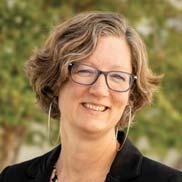
Once emotions are under control and we understand the other side, we can work together with the other party to create a “pool of shared meaning.” When we share meaning and goals, we can find ways to work together or create purpose. The folks at Crucial Learning believe that two parties must 1) commit to seek mutual purpose, 2) recognize the purpose of each party, 3) invent a mutual purpose and 4) brainstorm new strategies. How would this manifest in the resolution of the current UC strike? We will certainly see if a mediator can help both parties come to a mutual agreement that works for workers, students, staff and faculty.
As for myself, I will work to be more empathetic to both parties and pull myself out of “the box” during this unprecedented time. ◆
11 Leadership Focus
“During a conversation, we must work hard to recognize when we are experiencing high emotion or when the other person is experiencing high emotion. Recognizing high emotions before people turn to silence or violence is a key skill taught in the book ‘Crucial Conversations.’”
–Dr. Crump
Class 51 International Seminar Lessons Learned
The international seminar is an opportunity for fellows to compare and contrast cultural dynamics, be immersed in different cultures and dialogue with policy leaders.
IIn fall 2022, Class 51 fellows were immersed in the histories and cultures of Bulgaria, Kosovo, Serbia, Bosnia and Herzegovina and Croatia. Some of their objectives included deepening their knowledge of global occurrences that continue to impact people today, discovering stories of resiliency and servant leadership and comparing and contrasting cultural artifacts. Read their complete travel blog at class51internationaltrip.wordpress.com
DAY 1/ ARRIVED IN BULGARIA
The fellows arrived in Bulgaria and prepared for a busy seminar ahead.
DAY 2/ BULGARIA TO KOSOVO

Day two included an introduction to Bulgarian history; a visit to a Roma community cultural center, where the fellows provided art and soccer supplies as gifts to the school; and a walking tour of downtown Sofia. The fellows then made their way to Kosovo through two checkpoints. The first, Bulgaria to Serbia, was easy since each party agrees to the other’s sovereignty. The second, Serbia to Kosovo, was filled with more trepidation since Serbia does not recognize Kosovo as a sovereign state.
“The whole Kosovo border experience was emblematic of what we’re going to be experiencing this week. The region is fraught with ever-present concerns due to ethnic divisions. These manifested tragically in the form of war in the 1990s, but still persist today in ways we’ll learn more about in the days to come.”
—Betsy Karle, Victor Lopez and Kel Mitchel
By Liza Robertson CALF Writer/Editor
DAY 3/ OUR FIRST STEPS IN KOSOVO
This day began with a visit to a wine producer, a walking tour of the old town district of Prizren and the Sinan Pasha Mosque. Fellows saw Mother Teresa’s family home and visited the Catholic Cathedral of Our Lady of Perpetual Succour. After learning about Kosovo’s history, they finished the day with a visit to the Jashari Memorial, the site of a massacre at the start of the Kosovo War. Fellows learned about how Serbian forces encircled a home where 56 people held off attacks from 4,000 soldiers for three days before all but two members of the family were killed.
“A er leaving flowers at the memorial, we were able to tour the homes from which the family bravely defended themselves, their land and their freedom.”
—Darcy Vlot, Will Weiss and Jarett Zonneveld
12 Horizons Winter 2023 Cover Story
DAY 4/ A DAY IN PRISTINA
The second full day in Kosovo started with a visit to the U.S. Embassy, where fellows met with the economic and commercial officer and his colleagues to learn about economic developments, local government and geopolitical issues.
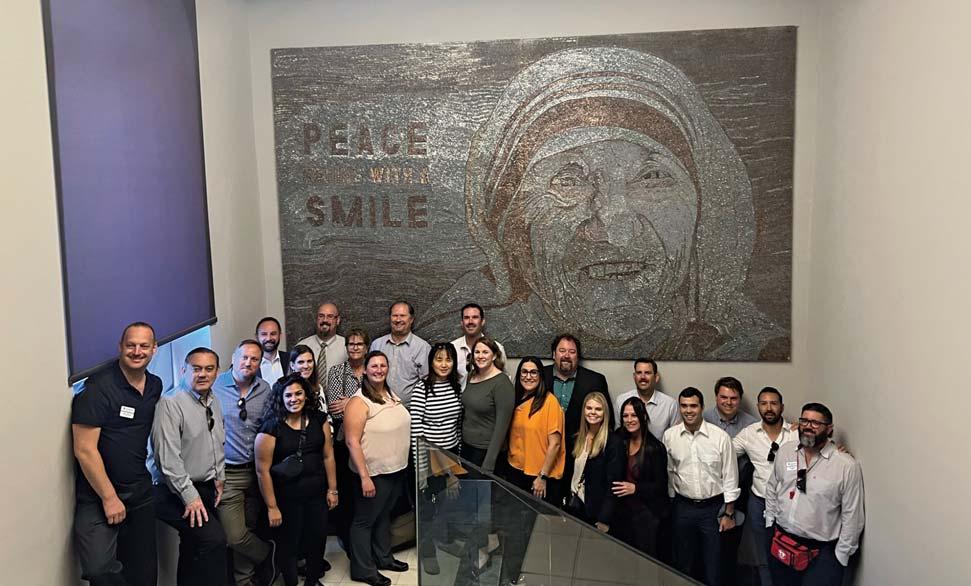
“Kosovo is an incredibly young country, established as a sovereign state in 2008. The citizens of this country are young, over 60% of the population is under the age of 35. The young population is striving to develop Kosovo from a postwar country into a country with a thriving and stable economy.”

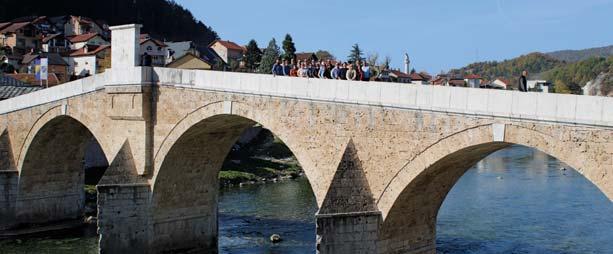
—Kevin Souza, Jessica Saltzman and Nick Escobar
DAY 5/ PRISTINA TO NIŠ TO BELGRADE

The fellows participated in the first synthesis of the seminar – an opportunity to check in with each other and process their experiences thus far.
“Fellows shared their discomfort with what felt like a very one-sided, Albanian nationalistic account from our Kosovo guides and hosts. We also recognized that we need to bring sensitivity to our upcoming interactions with Serbian citizens. Fellows acknowledged that we were primed to take a pro-Kosovo stance due to the very warm reception we received from the Kosovars, especially our guide and the country’s very U.S.-friendly sentiment. However, we also
expressed an eagerness to hear the Serbian perspective on the Kosovo-Serbia conflict.”
—Scott Berndt, Matan Goldberg and Carrie
 Isaacson
Isaacson
DAY 6/ FULL DAY IN HISTORIC BELGRADE, SERBIA
Fellows met with U.S. Embassy leaders who spoke about facilitating positive and productive relationships between Serbia, its visitors and potential foreign business investors. They also visited St. Sava Cathedral, where they heard traditional Serbian Orthodox and national music from an acapella choir and met with Philanthropy, a nonprofit organization, to whom the fellows provided various provisions for the people this organization serves. They also met with a representative from the United Nations High Commissioner for Refugees who provided an overview of the global refugee crisis and the agency’s work in Serbia.
“[Her] parting message was: ‘Nobody chooses to be a refugee. People generally do not like to ask for help and to be dependent on others. We need to think of refugees as human beings and help them restart their lives so they can regain their independence and sense of dignity, allowing them to contribute their hard work and talent to productive uses.’”
—Jake Cecil, Ahna Miller and Deb Willmann
DAY 7/ FINAL NIGHT IN SERBIA
Fellows visited a business owner who shared his family's experience of being forced to flee their ancestral home in Croatia after it was destroyed by a bomb in the first wave of the violence that erupted between the Croatians and Serbians.
“We couldn’t imagine how it would feel being forced out of a home

⇒
⇐
GRAČANICA MONASTERY A UNESCO World Heritage site and Serbian Orthodox monastery in Kosovo.
⇓
MUSEUM OF KOSOVO Fellows viewed historical artifacts, including this mosaic of Mother Teresa, made out of staples.
SCENIC VIEW
Cover Story 13
A quick stop at Stara Ćuprija bridge on the way from Tito’s Bunker to Mostar, Bosnia and Herzegovina.
that your family had dwelt in for centuries, but one can imagine it’s how indigenous people felt when Europeans arrived in the United States. The resilience shown [by this family] was inspiring – a er traveling through each region of Serbia, they found the right conditions upon which to rebuild their lives.”
goal is to share the important lessons of what happened there in 1995, in hopes of preventing future genocides.”
—Charlotte Mitchell, Darcy Vlot, Will Wiess
DAY 9/ A DAY IN SARAJEVO
and Herzegovina that was the site of terrible tragedies in the 1990s.
—Scott
Petersen, Jessica Saltzman and Ryan Stapleton
DAY 8/ A WEEK IN JULY 1995: A VISIT TO SREBRENICA, BOSNIA HERZEGOVINA
At the Srebrenica Memorial Centre, fellows learned about the 1995 killing of more than 8,000 Bosniaks, predominately Muslim men and boys, by the Army of Republika Srpska that had invaded the United Nations’ so-called “safe zone” near the small mountain town of Srebrenica.
“[The presenters] shared the details of the tragedy that they lived through, and in which they lost several members of their own immediate families, including a brother and a father. The center’s
During a second synthesis, fellows reflected on their experiences in Srebrenica and their time in Serbia.
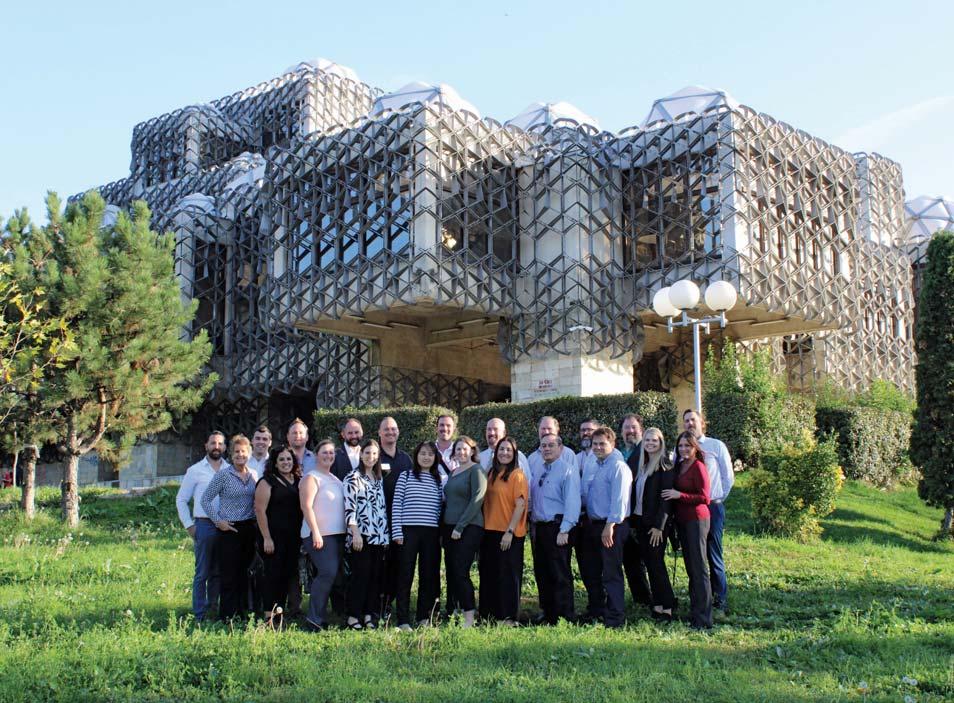
“We were struggling with the capacity for evil in our world and accepting that we won’t have all the answers on the Balkans by the time our international seminar comes to an end. We recommitted to staying curious and open minded, reiterating our interest in hearing the Bosniaks’ side of the story.”
—Carrie Isaacson, Victor Lopez and Ryan Stapleton
DAY 10/
GOODBYE SARAJEVO, HELLO MOSTAR
Fellows visited the bunker of Josip Broz Tito, former president of Yugoslavia; and visited Mostar, an area in southern Bosnia
“We finished our tour of Mostar with a visit to the Museum of War and Genocide Victims. The somber experience tied together all the information on the Bosnia wars that we have been learning about for the past few days. Harrowing details along with items and stories of the genocide le us questioning again how to stop the evil in our world. What can be done to prevent bad leaders from pinning neighbor against neighbor and how can love overcome the hatred and wickedness that continues to plague humanity?”
—Matan Goldberg, Betsy Karle and Jarett Zonneveld

DAY 11/
FINAL DESTINATION: SPLIT
Fellows heard from a University of Split professor who explained the history of the centuries of conflict that has engulfed Croatia. He compared current events in the Russian aggression in Ukraine with what Croatia and the rest of the Balkan states experienced from Serbia after the dissolution of the Yugoslav Republic nearly 30 years ago.
⇐ NATIONAL LIBRARY OF KOSOVO
An architecturally and academically significant site.
⇓ DANCERS
Traditional Albanian Kosovar dancers showcase culturally significant song and dance.
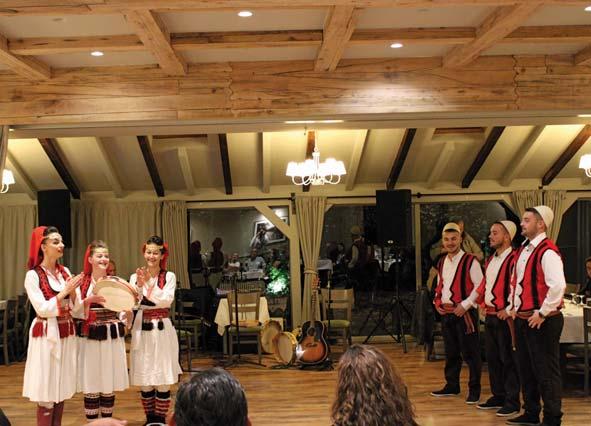
Cover Story
14 Horizons Winter 2023
“Dr. Jakir’s lesson in resilience relies not only on his family’s story, but also in the fact that education is perhaps the most important aspect of ensuring that humanity doesn’t duplicate the horrors experienced by his people. He highlighted that education should help to develop knowledge, skills and attitudes necessary for living in a multiethnic and multicultural society.”
—John Gardiner, Scott Petersen and Donglan Tian
DAY 12/ PLITVICE LAKES NATIONAL PARK
Leaving the Adriatic Sea, the group headed to the mountains to Plitvice Lakes National Park. A boat took the fellows across one of the many lakes to their next synthesis destination. They reflected on how they related to stories of individuals they had been asked to hold and carry, in a sealed envelope, for the duration of their seminar.
“Some stories were of victims of war and genocide, others were everyday heroes. Every fellow drew a different leadership lesson than the other 23 from the story they [read]. This prompts us to contemplate deeply on a thread that has been woven through almost every seminar these past 14 months – the importance of personal stories. Not only our own, but other’s stories as well. If we turn our chair to really listen to one another, we can continue to grow as leaders in the lessons their stories offer.”
—Jake Cecil, Ahna Miller and Kevin Souza
HEROINAT MEMORIAL
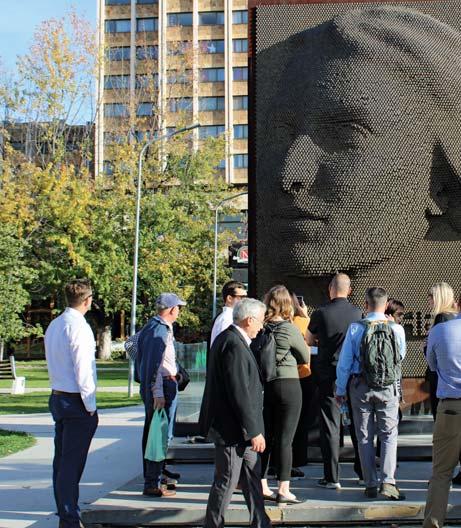
DAY 13/ FARMING AND A BALKAN FINALE
On their final day of the seminar, fellows met with local leaders and ended their day reflecting with each other about their international experience.
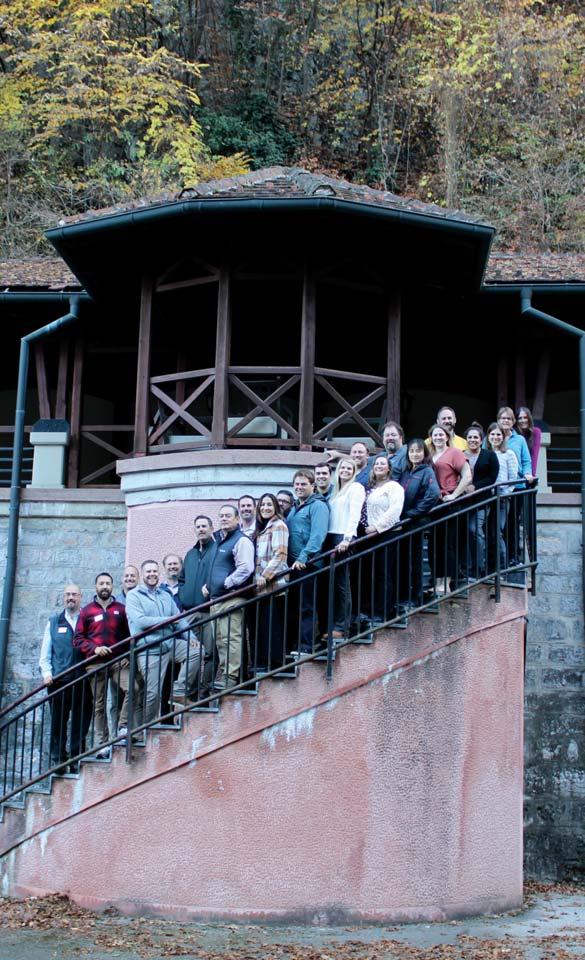
“Our finale dinner was a long awaited celebration of our time in the Balkans. We enjoyed a traditional Croatian meal full of leadership lessons, gratitude and fellowship. Our first toast was to the class for supporting each other. We also want to make sure the foundation, the board and all of the program’s alumni feel our gratitude. The time and investment that has been made on our behalf is something that we appreciate more than words can say.”
—Tom Gore, Miguel Lizárraga and Marlene Velasquez
DAY 14/ GOODBYE CROATIA –HELLO CALIFORNIA!
“As we embark on our journey home, we are reflecting on the experiences behind us. We traveled 2,500 kilometers via tour bus through five countries. We were shown the heartache and victories of so many people. Some lessons learned were a little tougher and some more light hearted. Our class motto 'leading with courage and grace' took a bit of a turn for a different meaning, having the courage to give grace, not only to others, but yourself. We are all so grateful for the experience and even more so for the bonds we forged along the way. The practice of surrender allows us to grow through challenges and move forward with grace.”
—Scott Berndt, Nick Escobar and Donglan Tian
Cover Story 15
⇓
A monument to Kosovar women who during the war were soldiers, victims of violence or active in the nonviolent resistance.
⇒
HYDROELECTRIC PLANT
Visiting the site of the plant designed by Nikola Tesla in Užice, Serbia.
Powerful

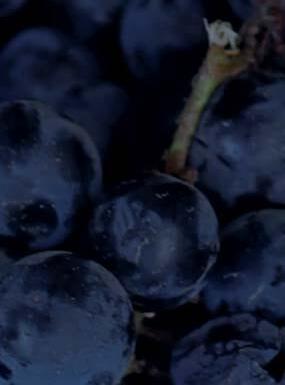
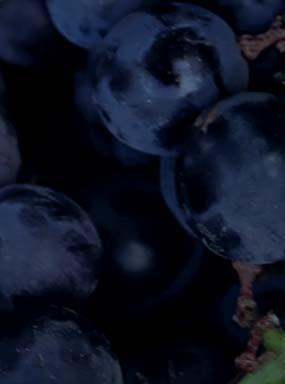
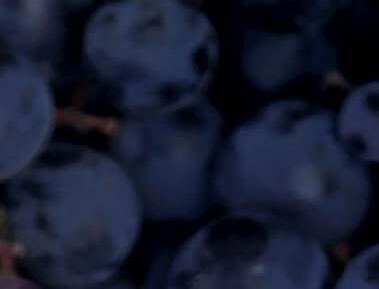
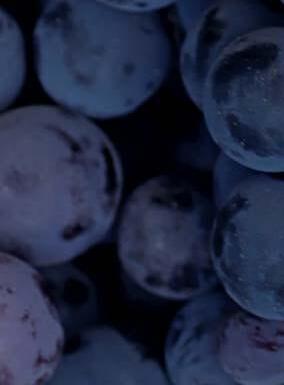
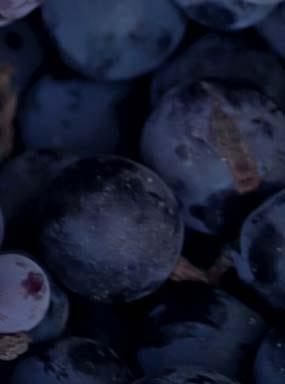
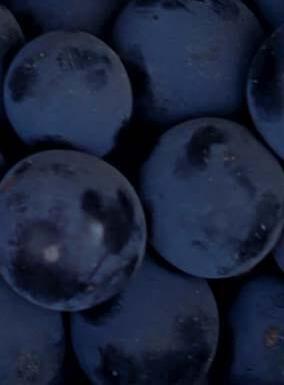
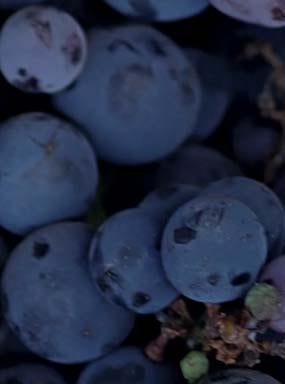
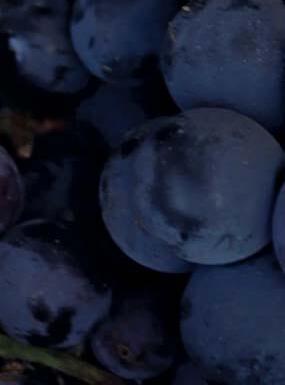
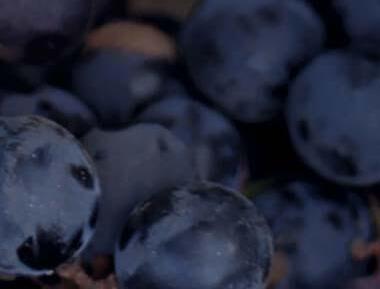
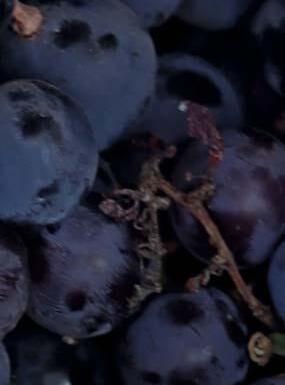
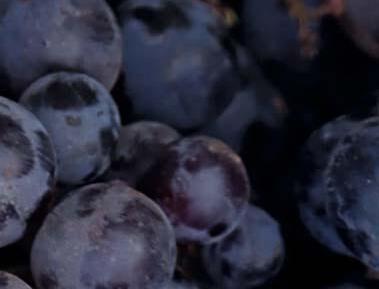 By Heather Mulholland (44) Alumni Council Interim Chair
By Heather Mulholland (44) Alumni Council Interim Chair
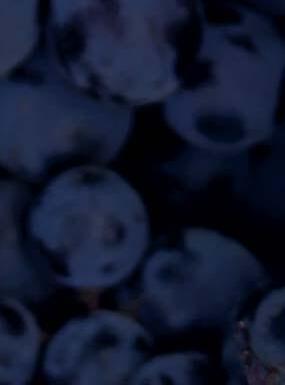
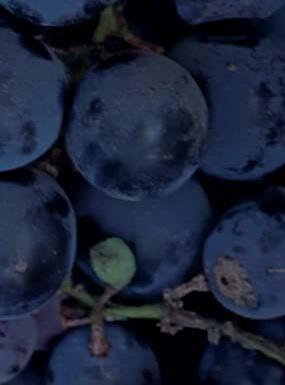
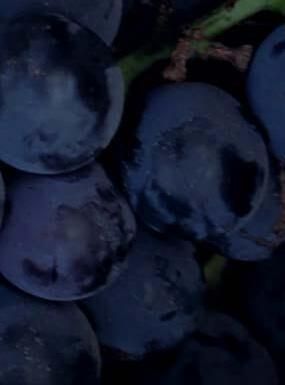
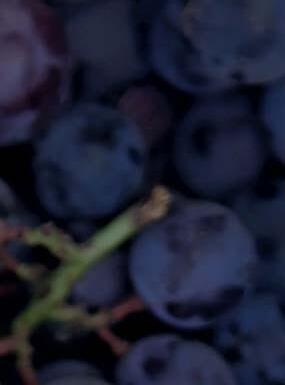
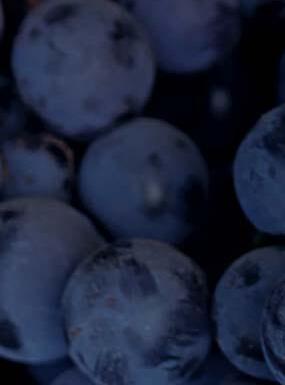
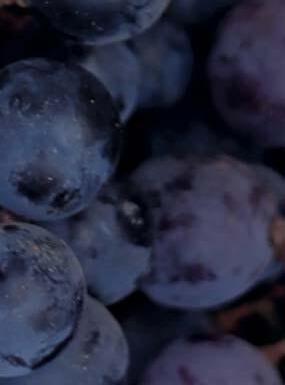
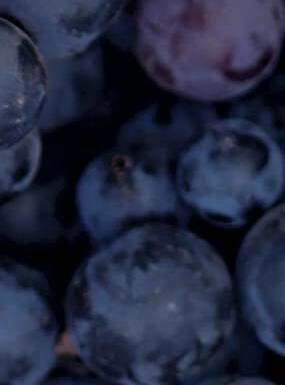
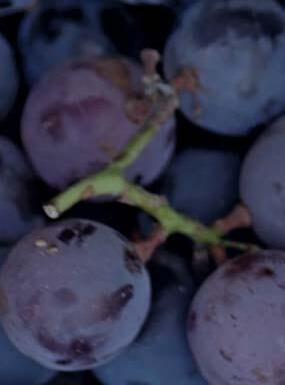
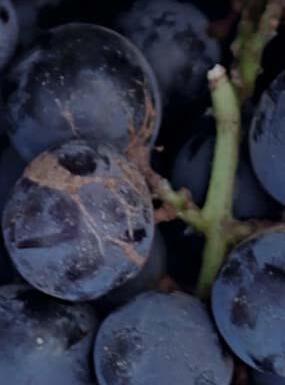
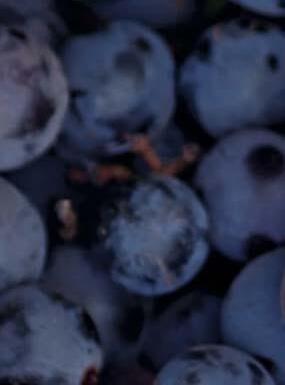
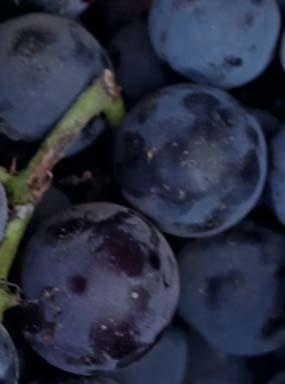
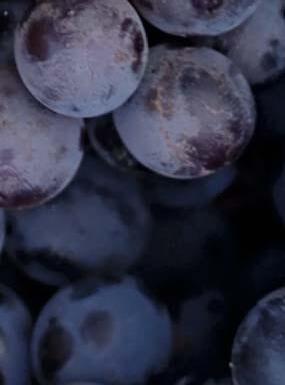
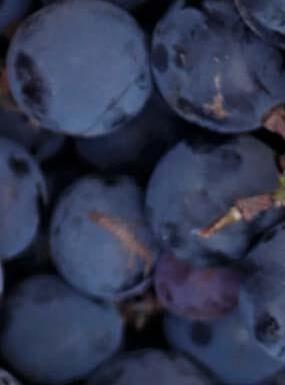
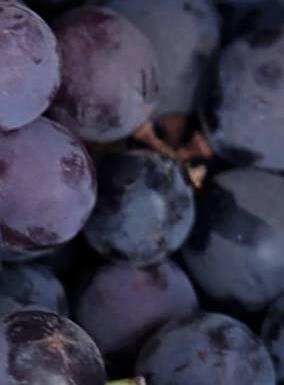
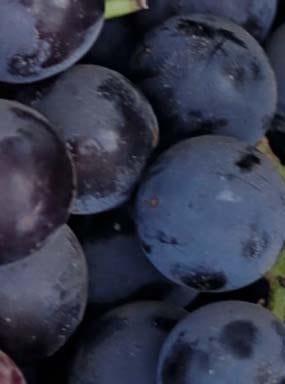
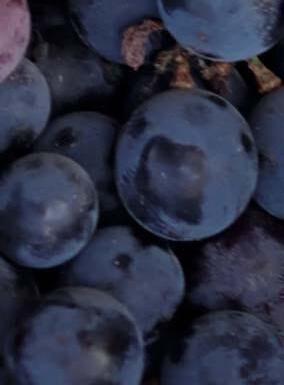
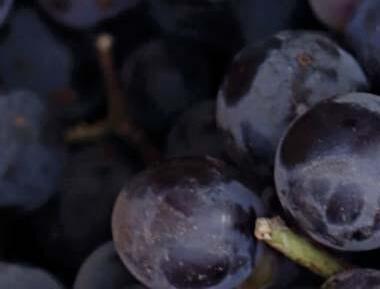
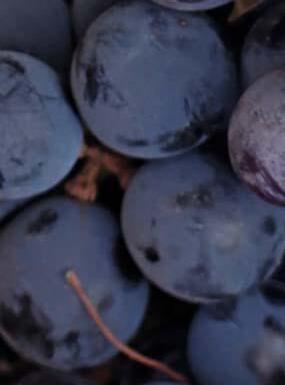
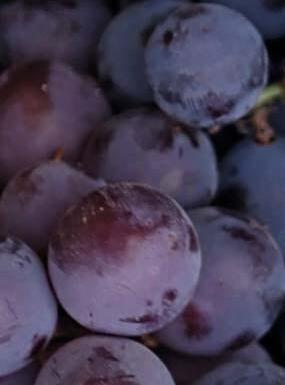
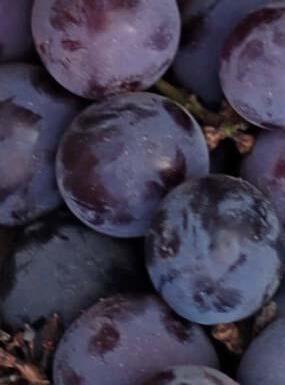
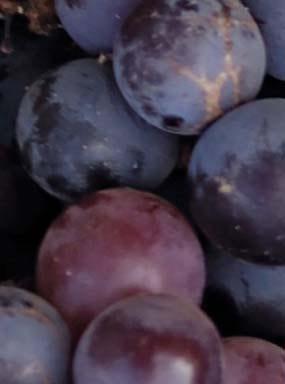
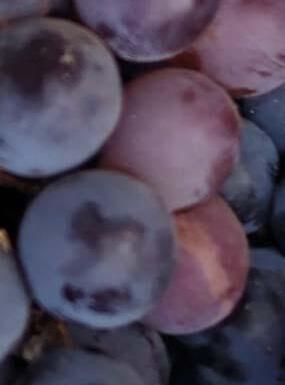
The Alumni Council (AC) met at Cal Poly San Luis Obispo in November for our annual retreat. We had the opportunity to participate in an enneagram workshop, which built upon and expanded the knowledge we had gained in the California Ag Leadership Program (CALP). Through the lens of enneagram, we reflected on the goals and intentions set at the retreat the year prior, reviewed opportunities going forward and reinforced our passion and excitement to contribute to serving the alumni community and CALP.
As we set intentions for the new year, many of us reflected on the past and set goals for the year ahead. As we reflected, the impact of CALP comes to the forefront of mind. The California Ag Leadership Foundation’s (CALF) mission is “Growing leaders who make a difference.” As a collective group of alumni, we have fantastic potential to contribute to the greater good. We are emotionally invested in the mission to lead in a way that contributes to making a difference. Our
individual and collective contributions to agriculture, our communities, our companies and our families do make a difference.
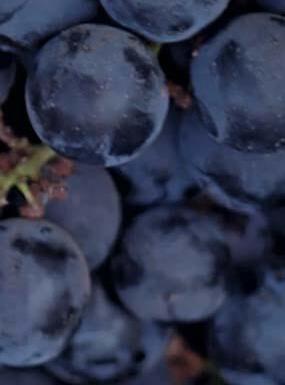
There are numerous examples of alumni coming together to make a difference. CALP gives us a shared knowledge, culture and language which is extremely powerful when we come together as influencers and change makers. Through involvement in trade associations, industry projects and philanthropic efforts, to name a few, our alumni community is a powerful force.
We call on you to help identify the good works being done by our alumni. Let us know what you and others are doing to have a positive impact. To share your stories of alumni making a difference, please contact Deanna van Klaveren at dvanklaveren@agleaders.org.
As we head into 2023, the AC will continue to share ways that alumni can contribute to and continue to engage with Ag Leadership. ◆
Alumni Council Message
16 Horizons Winter 2023
“When people are financially invested, they want a return. When people are emotionally invested, they want to contribute.”
–Simon Sinek
Sept. 12 / Region 9 Golf Tournament
NUMBER OF ATTENDEES : 100+
MONEY RAISED : Approximately $50,000
Oct. 27 / Jim Manassero Fellowship Lunch
After a gap of a few years, Region 5 alumni brought this event back.
NUMBER OF ATTENDEES : 29
MONEY RAISED : Nearly $2,000
Oct. 27 / Region 4 Fall Social
Local alumni and their families enjoyed a chilly fall evening at Ron Macedo's (32) R.A.M. Farms in Turlock to socialize and plan for future events.
Nov. 9 / L4 Workshop with Ashlee Sikorski

NUMBER OF ATTENDEES : 18
Alumni and staff learned together about the enneagram – a typology of nine interconnected personality types – and how the assessment can be used to increase self-awareness as well as awareness of the needs and styles
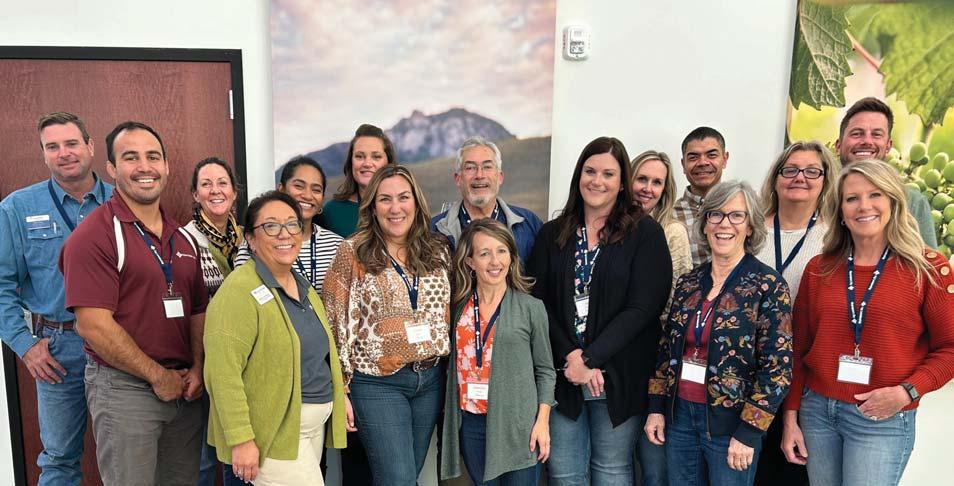
of others. Reminiscent of the deep learning that is done in the program, this workshop provided attendees with valuable leadership growth tools and skills. It also provided great opportunities for connection and relationship building with fellow attendees and carried into the work the Alumni Council (AC) members did during their retreat. Many are interested in learning more, which may lead to other opportunities to expand enneagram learning.
Nov. 10−11 / AC Annual Retreat
The AC met for two days to work toward the goal of defining more opportunities for alumni to contribute. On the first day of the retreat, attendees worked on expanding their understanding of the enneagram as it relates to connecting with fellow alumni. On the second day, the AC reviewed the foundation’s strategic plan and its approved policies and procedures in order to confirm alignment. The group discussed ways to improve outreach and support positive outcomes for alumni and the foundation. ◆
ALUMNI COUNCIL LEADERSHIP INTERIM CHAIR
Heather Mulholland (44)
BOARD LIAISON
Jason Cole (42)
PAST CHAIR
Bill Van Skike (32)
REGIONAL DIRECTORS
REGION 1
Kelly Mora (48)
REGION 2
Taylor Serres (49)
REGION 3
Tom Merwin (44)
REGION 4
Yvonne Sams (45)
REGION 5
James Ewart (49)
REGION 6
Ian LeMay (48)
REGION 7
Anthony Bozzano (43)
REGION 8
Lucas Espericueta (45)
REGION 9
Luis Calderon (49)
REGION 10
Vacant
REGION 11
Ellen Way (28)
EDUCATION TEAM LIAISONS
Sal Parra Jr. (46)
Manpreet Bains (43)
ALUMNI ENGAGEMENT MANAGER
Deanna van Klaveren (32)
Alumni Council
Update
17
⇙ ENNEAGRAM LEARNING
Attendees of the L4 workshop in San Luis Obispo.
Our long-awaited Alumni Conference & Celebration




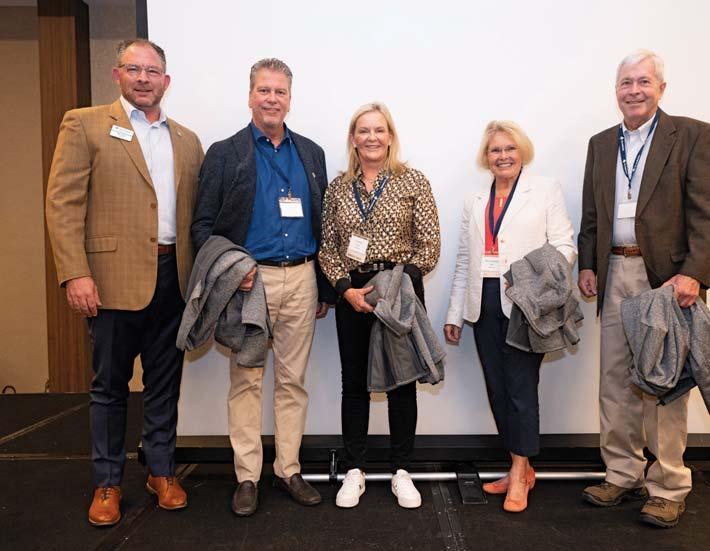
Dinner in October was enjoyable and memorable.
Thank you to all who attended, planned, executed and sponsored the event. Alumni, friends and staff who attended were inspired by the excellent speakers and special award presentations. They were also delighted to refresh old connections while making new ones. The conference committee (recognized on pages 20−21) worked to ensure a successful event for all attendees.
AWARDS


More than 200 attendees enjoyed the awards presentation and celebratory dinner.

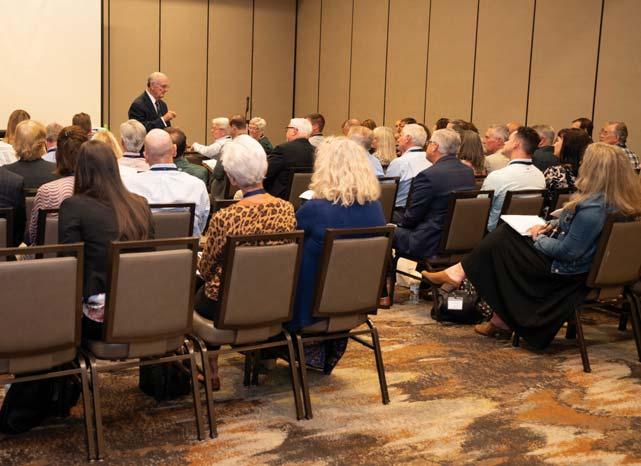
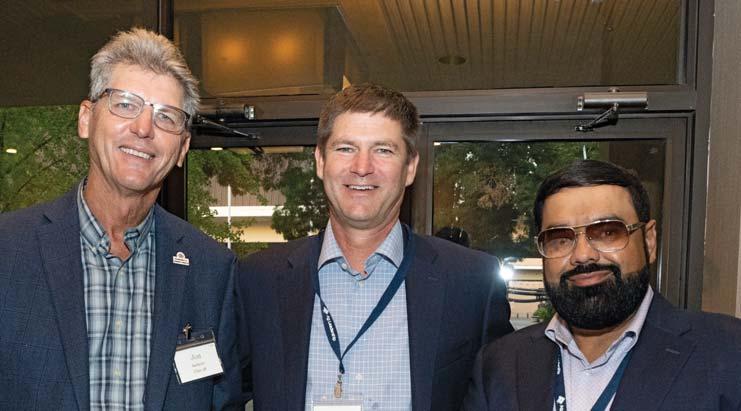
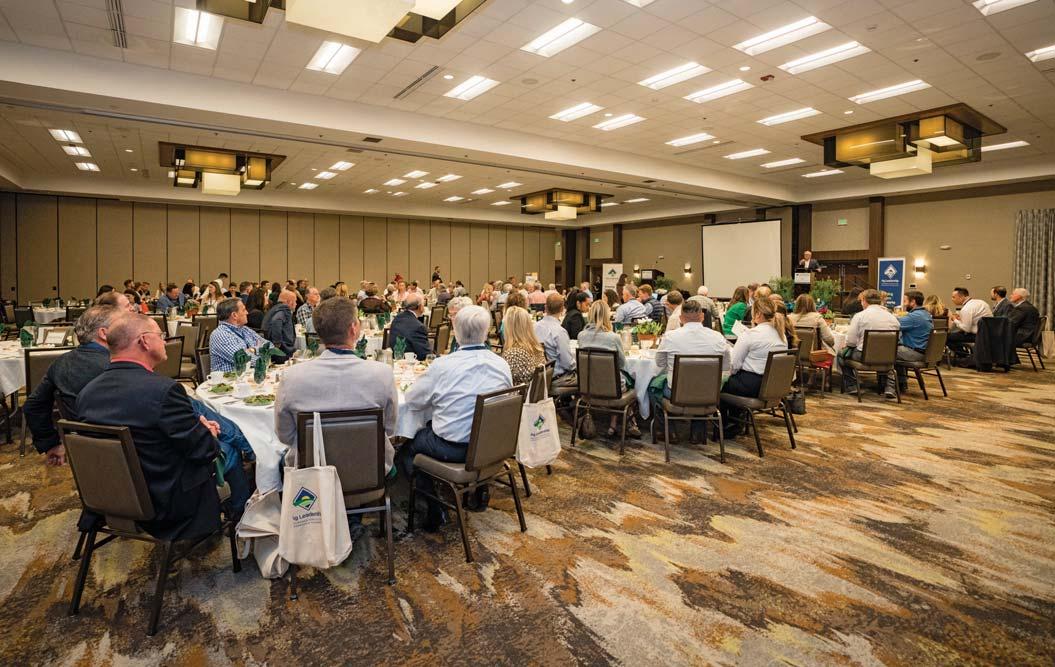
Alumni Events 18 Horizons Winter 2023
⇑ L4 EVENT Alumni participated in lifelong leadership learning presentations.
⇓ RECOGNITIONS
Mike Young (35) with past CALF board chairs Jeff Elder (35), Loren Booth (27), Rosemary Talley (19) and Richard Pidduck (21).
⇙ Jon Reelhorn (38), Michael Frantz (36) and Simon Sihota (36).
⇐
⇑
CLASS 45 ALUMNI
Rob Goff, Corrie Davis, Abby Taylor-Silva, Yvonne Sams and Rick Rhody.
Photos: Tomas Ovalle
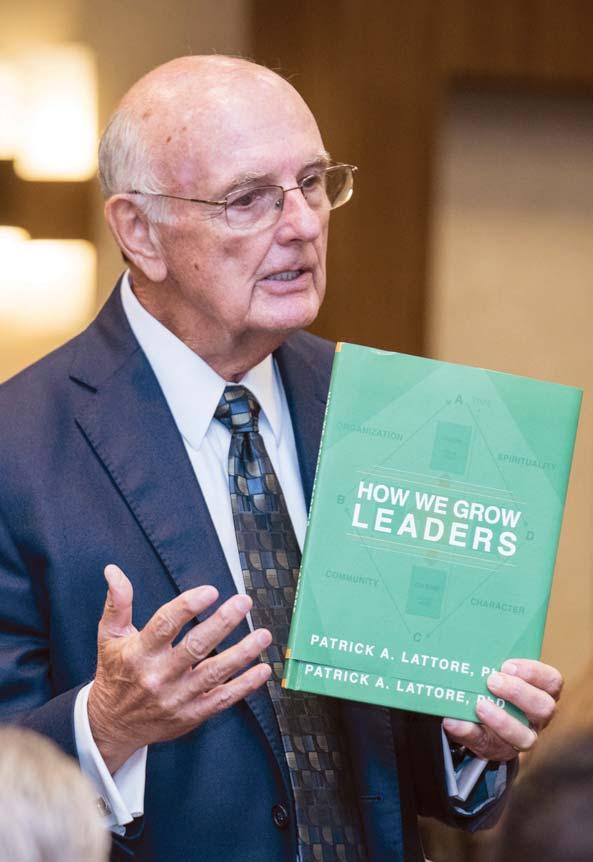
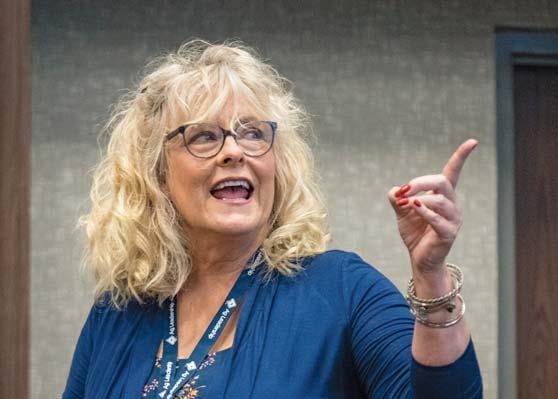
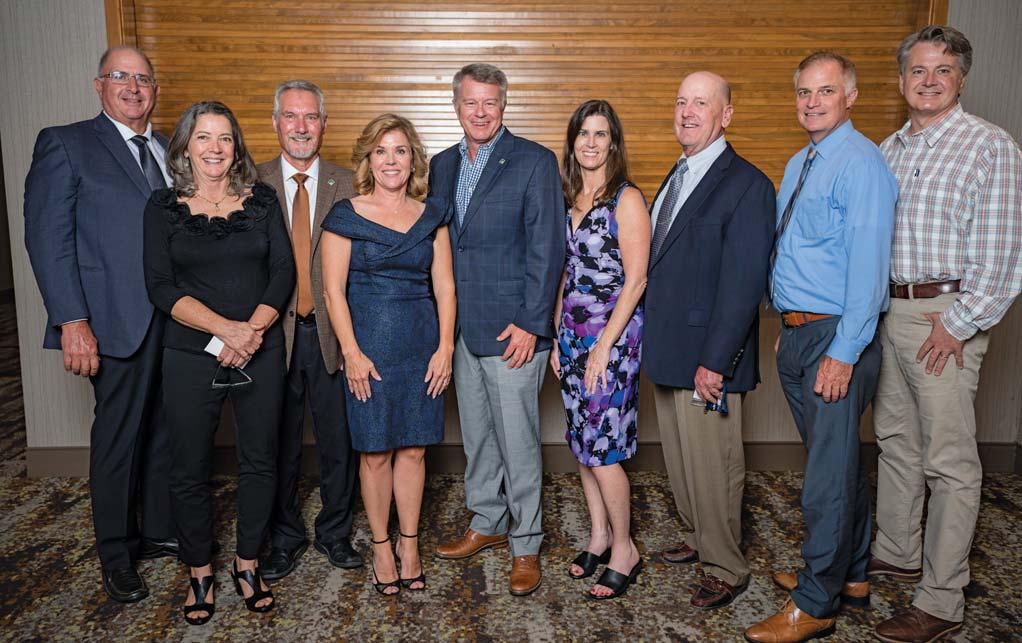
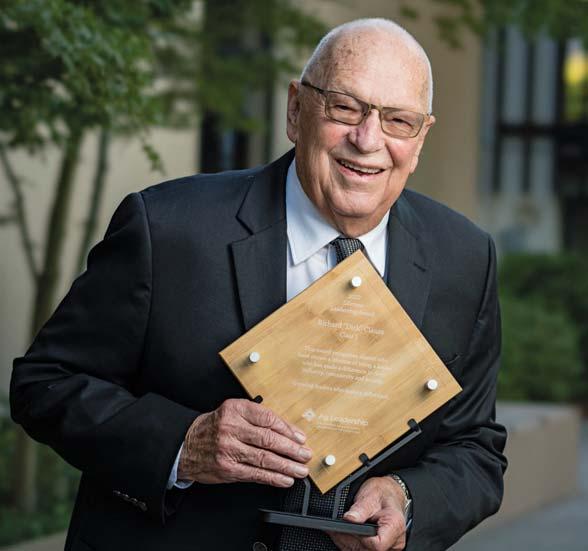
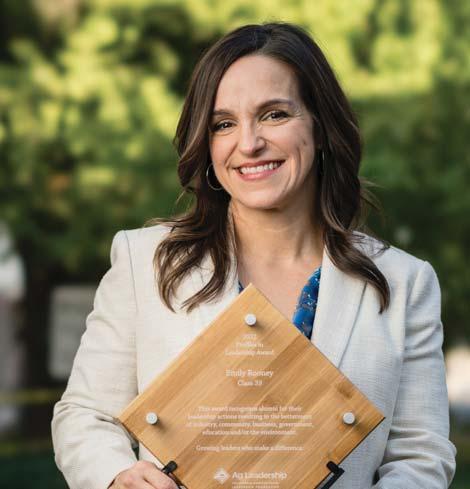
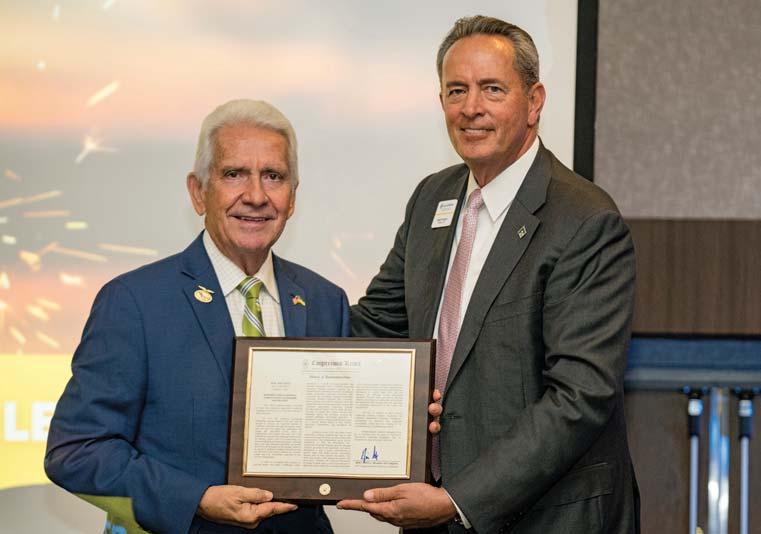
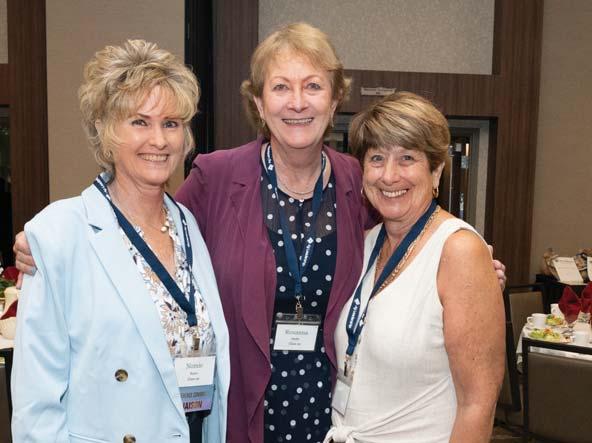







Alumni Events 19
⇒
CLASS 28 ALUMNI John Tufenkjian, Brenda Ouwerkerk, Jeff Colombini, Ellen Way, Jim Finch, Meredith Rehrman Ritchie, Mark Kimmelshue, Rich Engel and John Duarte.
⇑
Nomie Kautz (30), Roxanna Smith (19) and Carol Ahlem.
⇒ HONOR
Rep. Jim Costa presented a Congressional Record honoring Ag Leadership to CALF President & CEO Dwight Ferguson.
⇖ LIFETIME Lifetime Leadership Award recipient Richard Clauss (1).
⇑ PIL Profiles in Leadership Award recipient Emily Rooney (39).
⇒ AUTHOR Dr. Pat Lattore presented How We Grow as Leaders.
⇑ HAPPINESS Jean Steel presented Adapting in 2022 –Leading with Resilience.
Thank you to everyone who helped make our events a success!
Class 52 Final Selection Committee
AUG. 24 /
Erin Amaral (46)
Manpreet Bains (43)
Leeann Bettencourt (50)
Paul Crout (48)
Dr. Helene Dillard
Shannon Douglass (46)
Bonnie Fernandez-Fenaroli (19)
Heather Johnson (46)
Scott Klittich (43)
Ian LeMay (48)
Jazmin Lopez (48)
Julian Lopez (50)
Kandi Manhart-Belding (40)
Sal Parra Jr. (46)
Steve Pastor (27)
Yvonne Sams (45)
Tracy Schohr (39)
Roxanna Smith (19)
Dr. Patricia Stock
Mike Young (35)
Region 9 Golf Tournament
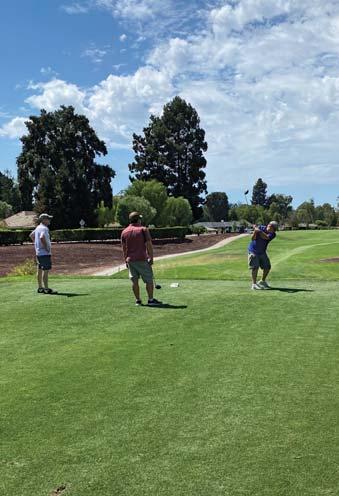
SEPT. 12 / CAMARILLO COMMITTEE
Luis Calderon (49)
Jason Cole (42)
Ted Grether (47)
Susan Josue (43)
Scott Klittich (43)
Shannon Leigh (43)
Helen McGrath (43)
Mike Nunez (29) / chair
Yezmin Carrasco Valle (50)
DIAMOND SPONSOR
Driscoll’s
PLATINUM SPONSORS
Calavo
Farm Credit West
Granite Peak Partners
Index Fresh
Reiter Affiliated Companies
The Wonderful Company
GOLD SPONSOR Circle Vision LLC
SILVER SPONSORS
Acuity Agriculture
Assured Partners of CA Insurance Services LLC
Art Bliss (8)
Brokaw Nursery LLC
Camulos Ranch
Farm Bureau of Ventura County
Finch Family Farms
Fruit Growers Supply

Leavens Family
McGrath Farms
Mission Produce
Otto & Sons Nursery
LUNCH SPONSOR
Redox

GIFT BAG SPONSOR
Mission Oaks Management Group
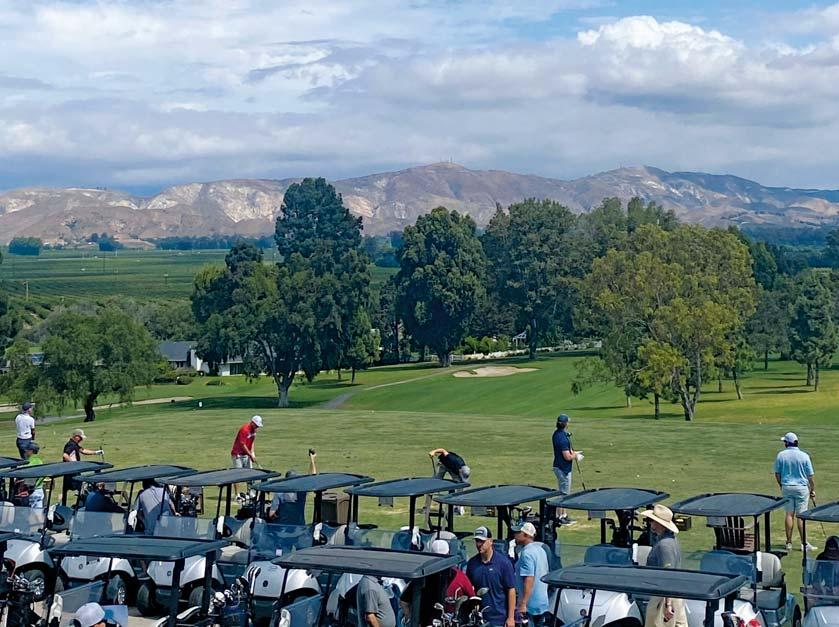
DRINK SPONSOR
Cole Ltd
DONORS
CamLam Farms
Grether Farming
Ralph and Jane Maiello
Dr. Peggy Sears Perry (9)
Class 52 Inauguration
OCT. 6 / FRESNO
Allied Grape Growers / Jeff Bitter (32)
Belmont Nursery / Jon Reelhorn (38)
Farm Credit
Alumni Conference & Celebration Dinner
OCT. 7 / FRESNO
COMMITTEE
Anthony Bozzano (43)
Carson Britz (43)
John Chandler (44)
Jason Cole (42)
Mandy Critchley (37)
James Ewart (49)
Sandy Fiack (29)
Melissa Heinrich (46)
Gayle Holman (46)
Julia Inestroza (34)
Heather Johnson (46)
Nomie Kautz (30)
Ian LeMay (48)
Tom Merwin (44)
Heather Mulholland (44)
Sal Parra Jr. (46)
Yvonne Sams (45)
Bill Van Skike (32)
Ellen Way (28)
GOLD SPONSORS
Class 28
Kent and Tara Brocker
Jeff Colombini
John Duarte
Richard Engel
James Finch
Mark Kimmelshue
Michael Kuehn
⇗
20 Horizons Winter 2023 Alumni Events
GOLF FUNDRAISER Region 9 alumni hosted their 31st annual golf tournament, reception and dinner.
Ed Kuykendall
Michael Maciel
Craig McNamara
Brenda Ouwerkerk
Joe Pezzini
Joe Pozzi
Meredith Rehrman Ritchie
Michael Sencer
Scott Stone
Dana Thomas
Scott Van Der Kar
Paul Violett
Ellen Way
Granite Peak Partners
SILVER SPONSORS
Agricultural Council of California
Hilmar Cheese Company
RPAC LLC
BRONZE SPONSORS
Richard Clauss (1) and Kimberly Clauss Jorritsma (29)
Bill Cramer (17)
J+J Farms
Mark Kimmelshue (28)
R. Gorrill Ranch Enterprises Region 11
Celeste Alonzo
Cherie Watte Angulo
Kevin Grizzle
Kathryn McCutcheon
Mark Nickerson
Ben Olson Jr.
Jack Vessey
Danny Walker
Ellen Way
Santa Paula Creek Ranch
ADDITIONAL SUPPORT
Good Fat: Christy Bourbon & Straight Up Band
Class 29: Memory Lane Lounge
Jim Manassero Fellowship Lunch
OCT. 27 / SALINAS COMMITTEE
Darlene Din (35)
James Ewart (49)
Jazmin Lopez (48)
Daryn Miller (49)
Laura Guidici Mills (29)
SPONSORS
Dale Coke (35) / Coke Farms
Jerry Diefenderfer (2)
James Ewart (49)
Jazmin Lopez (48)
Karen Lowell
Laura Giudici Mills (29)
Sharan Lanini (16) Consulting
Trevor Suslow
Region 4 Social
at R.A.M. Farms
OCT. 27 / TURLOCK
HOST : Ron Macedo (32) / R.A.M. Farms
Dean Brown Golf Tournament
NOV. 4 / SANTA MARIA Committee and sponsors will be recognized in the summer 2023 issue.
CALF Holiday Open House
DEC. 15 / MONTEREY
Driscoll's
Alumni Learning
Lifelong Leadership Learning (L4) Program
Ag Leadership is working on creating the L4 Program which will provide alumni with opportunities for continual growth through content similar to what current fellows experience.
This comprehensive program will include the Leaders are Readers Book Club, First Fridays and workshops. It will be aligned with and connected to the California Ag Leadership Program in a way that provides valuable leadership learning to alumni. Stay tuned for more details.
21
Alumni Events
Powerful Connections: Leaders in Cattle Ranching
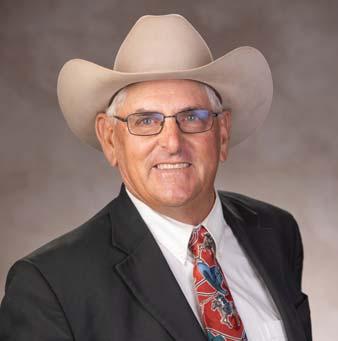



What lessons learned from Ag Leadership do you still use?
These leaders spoke to us about current issues and how the powerful connections and skills they gained through Ag Leadership help them advocate for their industry.
By Liza Robertson CALF Writer/Editor
What lessons learned from Ag Leadership do you still use?
STEVE ARNOLD
PRESIDENT /
CATTLEME
What are your main issues and challenges in the cattle ranching industry?
“Like all agricultural industries, the cattle business can be broken into several categories. As a cow-calf producer, arguably the beginning of the cycle, I am especially dependent on rainfall for grass. The past two decades have yielded significantly below average rainfall most years, making it difficult for ranchers to maintain sustainable herd sizes. Regulations and tax hikes coming from all levels of government increase the cost of doing business. Beef producers don’t have much control over prices and revenues don’t always cover the increased cost of production. California ranchers have been particularly hard hit by regulations. Everything from increased fuel prices to soaring insurance costs make it more difficult to stay in business.”
“Ag Leadership taught me the importance of staying involved in governmental processes and how to engage. Production agriculture represents a minority of the population, yet plays an important role in society by delivering a dependable food supply. Ag Leadership taught me how important it is for producers like myself to be able to get the message to elected officials and to the public so they understand how agricultural production works and continue to support us. Thanks to Ag Leadership, I have actively participated in many industry organizations as a way to get that message out.”
How are your Ag Leadership connections beneficial in the industry?
“Ag Leadership not only educated me on numerous issues I had never been exposed to, but also helped me create bonds with other producers that have lasted a lifetime. For myself and many Ag Leadership graduates I know, the program was a life-changing experience and continues to open doors decades later. Ag Leadership has helped many producers connect, and I believe has made the agricultural industry stronger.”
What are your main issues and challenges in the cattle ranching industry?
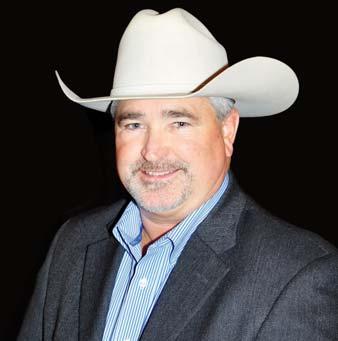
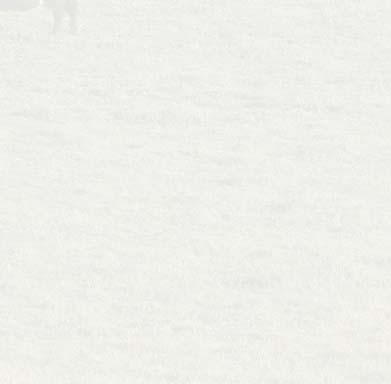

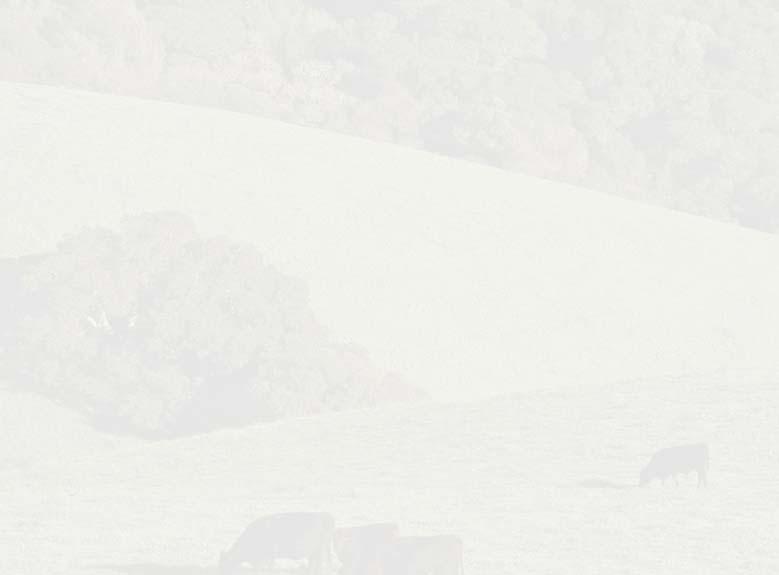

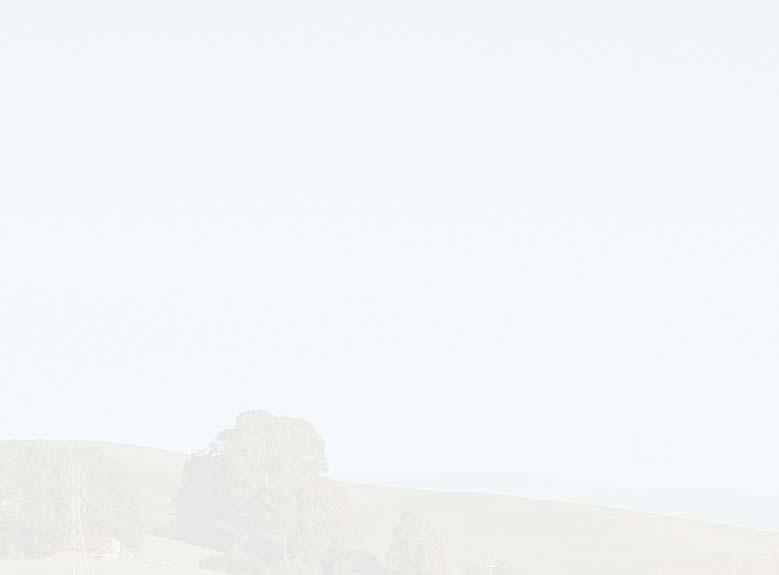

“Where do I start? Drought, fuel prices, marketing and processing limitations and land availability are just a handful of the challenges that the cattle industry is experiencing. We’ve been able to get by, but if this drought keeps up or gets even worse, we will have to decrease herd size just like many other producers have already had to do. Increased fuel and transportation costs are killing us and are taking a huge bite out of what is already a limited profit. Lack of inspected harvest facilities means huge expenses to get finished products to consumers. The cost of grazing land is not compatible with revenues generated from livestock.”
“The Ag Leadership Program took us out of the field and into the world. The program taught me to not rush to conclusions, as there is far more gray in the world than there is black and white. This take-a-step-back-and-look approach has really made me much better at exercising leadership. It also showed me that there are many ways in which we can make a positive impact in our lives, whether that is through our careers, our communities or even in our families. These impacts, regardless of how small we may perceive them, can be enormous to others.”
How are your Ag Leadership connections beneficial in the industry?
“On a professional level, the connections have been very valuable. There is somewhat of an elevated level of respect when interacting with a graduate of the program, knowing they have been through the same experiences and lessons that helped shape me into the person I am. It isn’t just the professional connections however; Ag Leadership alumni are like family, whether in a work or social setting, and that is a value that cannot be quantified.”
(20)
CALIFORNIA
N’S A SSOCIATION
MICHAEL DELBAR (24) CEO / CALIFORNIA RANGELAND TRUST
22 Horizons Winter 2023 Alumni
What are your main issues and challenges in the cattle ranching industry?
“Our main issue is processing and delivery. It's been a struggle for 30 years and doesn't seem to be getting easier. We have to drive more than 200 miles (one way) to our USDA slaughter and butcher facility. This year there has also been a shortage of refrigerated trucks due to supply chain issues and competition with food delivery services. It seems like every time we solve one problem, two more come up.”
What lessons learned from Ag Leadership do you still use?
“The best lesson I learned is to listen. Listening to others' points of view with respect and an open mind does wonders, not only for your own objectives but for all of mental health. I remember a session with Leon Panetta where he
said that nothing gets done in the ‘black or white’ areas, you get things done in the ‘gray’ areas. I've seen that play out at every level of politics: local, state and federal. The people who listen, compromise and work together are the most effective leaders.”
How are your Ag Leadership connections beneficial in the industry?
“We have class members at high levels of management in California agriculture, the EPA, the wine and dairy industries as well as city council members and county government. I reach out to them when I have a question or just need background on something. The diversity of our class was a benefit to all of us. I am still friends and work with many of my classmates. Class 33 is an amazing group!”
What are your main issues and challenges in the cattle ranching industry?
“I have deep roots in the ranching industry as a fifth-generation cow/calf producer in the Bay Area. It's an industry with a close knit community spread far and wide, and with many challenges. A few top concerns continue to be stifling regulations, skewed public perception, securing grazing leases and in some instances, sectors impacting others with negative advertising. A major concern to me is the involvement and success of the next generations. My husband and I manage a set of registered Red Angus cattle, which is a niche market, creating opportunity to capitalize on our genetics as breeding bulls and females. Diversifying on-ranch monetary activities has created optimism in the industry. Success comes from adaptively managing and creatively overcoming through generations and we are grateful to be raising our three kids in the beef industry.”
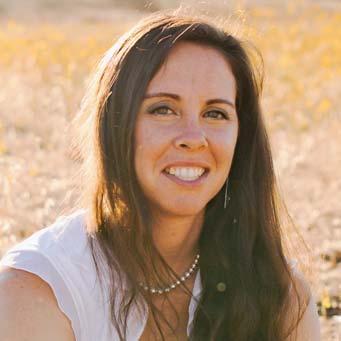
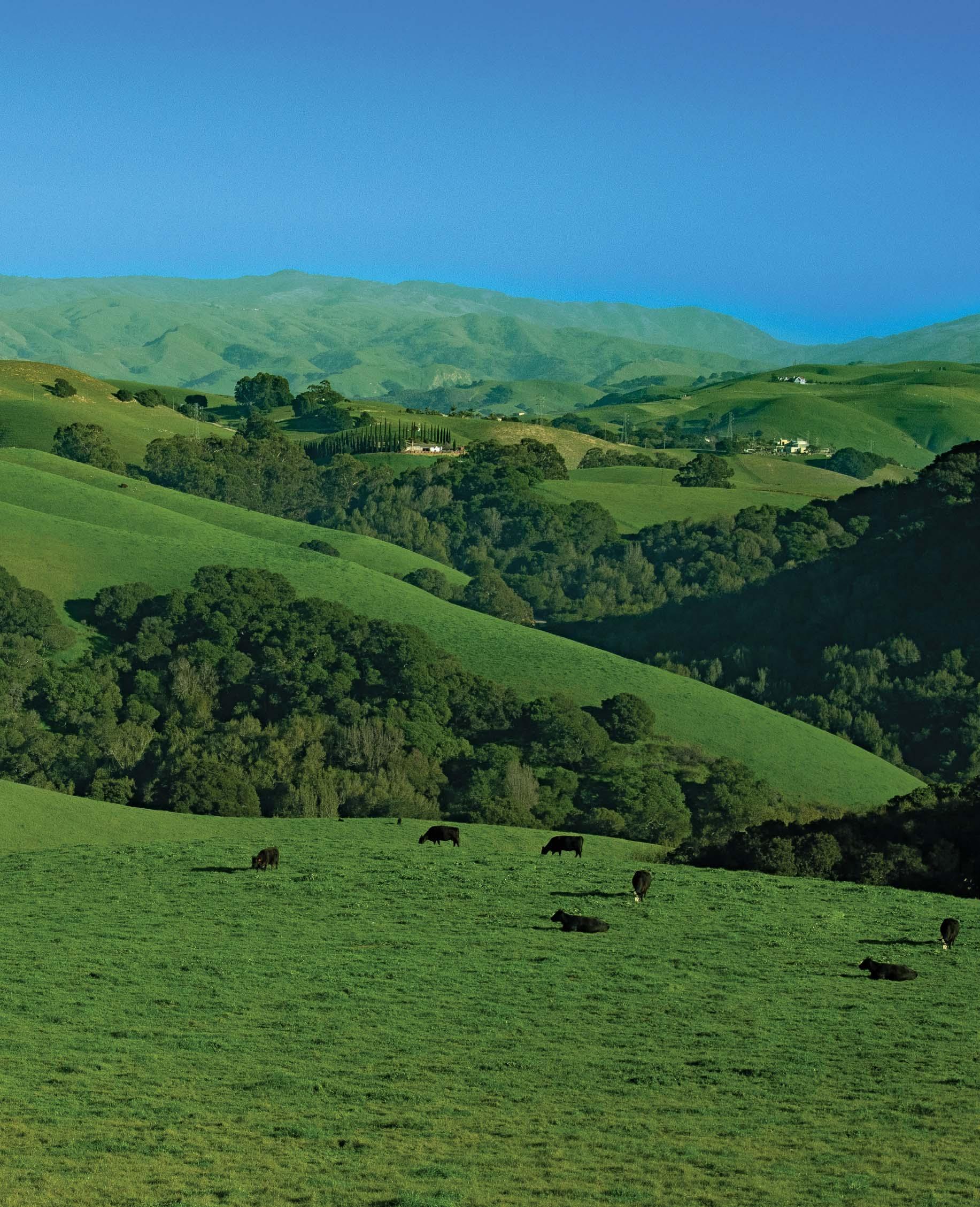
What lessons learned from Ag Leadership do you still use?
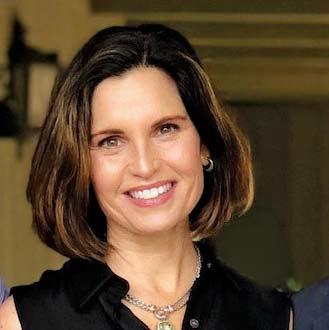
“Learning more about myself and the traits of others through the personality analysis done early on in
the program helped me understand how to better communicate in different situations. I feel that by practicing communication skills with emotional intelligence, I have a better understanding of the needs of the conversation, ensuring a more successful outcome.”
How are your Ag Leadership connections beneficial in the industry?
“From the moment I walked in for my interview for Ag Leadership, looking down the oversized table to the interviewers’ intense curiosity, to standing on the big stage the evening of our graduation, I knew that I wanted to be a part of this lifelong team. The relationships I had started building in those 17 months would be some of the most nourishing to my perpetual personal growth. I often run into alumni I don't know in unexpected places and it creates an instant connection, a deeper understanding of one another's core compass. I know that I can reach out to classmates and mentors of the program and receive honest, authentic guidance with experience to support it.” ◆
JULIE F. MORRIS (33)
CO-OWNER / T.O. CATTLE COMPANY - MORRIS GRASSFED
CARISSA KOOPMANN RIVERS (44)
OWNER / RIVERS RED ANGUS PASTURE, RANGELAND, FORAGE DROUGHT SPECIALIST / OZARK HILLS INSURANCE
“It isn’t just the professional connections however; Ag Leadership alumni are like family, whether in a work or social setting, and that is a value that cannot be quantified.”
23 Alumni
–Michael Delbar
Spotlights
By Meredith Rehrman Ritchie (28) CALF Marketing & Communications Coordinator
Building Positive Relationships
Loyalty, longevity and leadership aptly describe Cara Crye Wright’s (39) 26-year career with Farm Supply Co., a 72-year-old farmer-owned cooperative serving the Central Coast’s farm, ranch, garden and home needs.

A special part of Wright’s life since childhood, Farm Supply turned into a successful profession – and labor of love – that she’s incredibly passionate about. She started as a part-time sales associate in 1996, then served as marketing coordinator and vice president of communications before taking on the role of president and CEO in July 2017.
A fourth-generation San Luis Obispo (SLO) County resident with a family cattle ranching background, Wright understands the importance of fostering positive relationships with Farm Supply’s 2,400 members, 125 employees and the community. She said Farm Supply makes a difference by supporting scholarships, programs and classes for local youth in agriculture. The company also connects with the community through partnerships and events, including its popular Great Pumpkin Contest, which help increase awareness about agriculture.
“One of our cooperative’s core values is to remain deeply rooted in our community,” said Wright. “We are grateful for the ability to support school gardens, and young leaders in agriculture through 4-H and FFA, many of whom are excited that their first job is with Farm Supply. We partner with local organizations like SLO County Farm Bureau, SLO County Cattlewomen, SLO County Cattlemen’s Association, SEEAG and Farmstead ED. Our team knows and takes pride that we are the local farmer-owned cooperative on the Central Coast and it is an honor to support the agriculture industry.”
Wright also builds positive relationships in the community by serving on the Cal Poly Corporation board, Cuesta College Foundation board, MUST! Charities, advisory boards for the high school agriculture programs in SLO and Shandon and the Central Coast Economic Forecast.
Whether it’s with her job or volunteer positions, Wright believes that servant leadership is where she finds herself at her best. “I acquired this style at a young age watching my parents and then mentors in high school, college and my career,” she said. “I believe by showing up, knowing that my leadership shines in a support role where I can be a servant to others to succeed, serves everyone to their greatest potential. During my career as CEO, I have also learned there are times when I must adapt to other styles of leadership, like authoritative leadership during COVID for the safety of all or coaching-style leadership with a new manager.”
Wright said the leadership skills she acquired during the program have been beneficial professionally and personally. “Ag Leadership made me a better leader by leaning into my emotional intelligence,” she said. “Arriving in any situation with an open mind, ready to understand and have compassion for both sides of the situation. Asking more questions and knowing that there might not be one answer to the situation at hand. I take this opportunity to learn and be a better leader the next time.”
New Outreach Campaign to Promote Ag Leadership
The foundation is excited to soon launch an engaging outreach campaign, which was one of the top marketing and communications priorities in the 2021 strategic plan. The goals of the campaign are to engage more alumni, increase potential applicants, increase awareness of Ag Leadership and encourage donations and donors.
Alumni
24 Horizons Winter 2023
Collaboration is Key
The fresh produce industry has faced many critical and sensitive food safety issues. Center for Produce Safety (CPS) Executive Director Bonnie Fernandez-Fenaroli (19) knows that collaborations and leadership are vital to handling these issues.
CPS is a unique partnership, bringing together diverse leaders from industry, government and the scientific and academic communities to work collectively toward enhancing fresh produce food safety. With a mission to fund science, find solutions and fuel change, CPS has invested more than $40 million in 225 produce-centric food safety research projects.
Starting as executive director in 2008, Fernandez-Fenaroli has helped ensure the nonprofit's strong collaborations and excellent reputation. She works to leverage public and private expertise and research dollars to address critical risk management issues in the growth, harvest, processing and distribution of fresh produce. She works with a 28-member board of directors that includes two Ag Leadership alumni – Joe Pezzini (28), board chair, and Stephen Patricio (19), past board chair and one of her classmates.
Fernandez-Fenaroli said the architects of CPS designed an organization dependent on collaboration and sharing knowledge. “Many of the produce safety issues we face are complex; to solve our issues, the questions we must answer are equally complex,” she said. “The board, technical committee and our volunteers from throughout the produce supply chain, academia and government agencies from the United States and worldwide all work towards effective solutions. To meet our mission, we must share knowledge and trust that CPS allows a safe collaboration space.”
Fernandez-Fenaroli has worked closely with countless industry professionals during her 40-year career in agriculture. Prior to CPS, she worked at the California Wheat Commission (CWC)
from 1984-2008 and served as its executive director for 15 years. She began her Ag Leadership journey in 1988, which was beneficial for her commodity-focused work, industry leadership roles and volunteer efforts. She serves on advisory teams for various national food safety research projects, is a member of the California Agricultural Neighbors steering committee and leads a local utility box painting program.
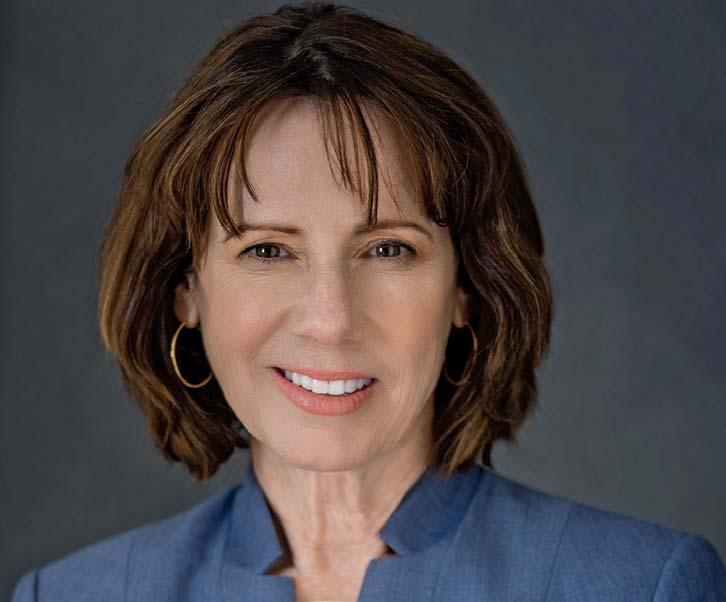
She has also volunteered for Ag Leadership, most recently as a member of the Davis and final selection committees for Class 52. It’s one way for her to give back to the program and help choose other leaders who will make a difference. “Ag Leadership made me a better leader by being placed in Class 19,” she said. “My fellow class members mentored me. This extraordinary group of people taught me that leadership is a personal style. Our experiences and personalities form our leadership awareness and the understanding of the ability to lead. My confidence grew immensely, knowing that while I was more of a quiet person, I could lead when the opportunity came to me.”
CAMPAIGN DETAILS
/ The campaign theme is “I grew with Ag Leadership,” which connects with CALF’s mission of “Growing leaders who make a difference.”
/ The campaign will feature alumni and positive testimonials highlighting how they grew with Ag Leadership; how Ag Leadership enabled them to make a greater impact in agriculture, businesses,
communities and families; and why they would recommend the Ag Leadership Program to others in agriculture.
/ In an effort to reach various target audiences, the campaign will be featured predominantly on CALF’s social media platforms – Instagram, LinkedIn and Facebook – and on the website. In 2023, one alumnus/a will be featured each month. In addition, the alumni spotlights
in Horizons will include the “I grew with Ag Leadership” theme. As part of an integrated marketing approach in the future, print ads will appear in select California agricultural industry publications.
/ The campaign will be consistent with the look and feel of the brand refresh.
25 Alumni
Giving, Helping and Serving
It has been 44 years since John Muller (8) graduated from Ag Leadership, and he hasn’t slowed down with volunteering since that day – June 9, 1979. “Right after graduation, Norm Martella (6) kicked it in gear by asking me to serve on the Ag Leadership Alumni (ALA) board, and from there it never stopped,” he said.
Muller has extensive and diverse local, state, national and international experiences. Mary-Ann Warmerdam (17) suggested he apply for the San Francisco Bay Regional Water Board, where he served for 21 years. He is the former chair of the Coastside County Water District board and now a member of the Association of California Water Agencies – Region 5. He served on the U.S. EPA Local Government Advisory Committee and on a USDA trade advisory committee, which took him to several countries. In addition to the ALA board, Muller spent nine years on the CALF board. His local public service included the Half Moon Bay City Council, with two terms as mayor.
“I owe all these wonderful opportunities and privileges to Ag Leadership and the support of my wife, Eda, and my family,” said Muller. “I feel so lucky that I have tears in my eyes thinking about it.”
A U.S. Navy Vietnam veteran, Muller said Ag Leadership made him a better leader by giving him the confidence to be as strong and helpful as possible. “I didn’t have a college degree, so the program was incredibly beneficial. It inspired me to be involved and take advantage of any opportunity that came my way. It accomplished what the founders intended.”
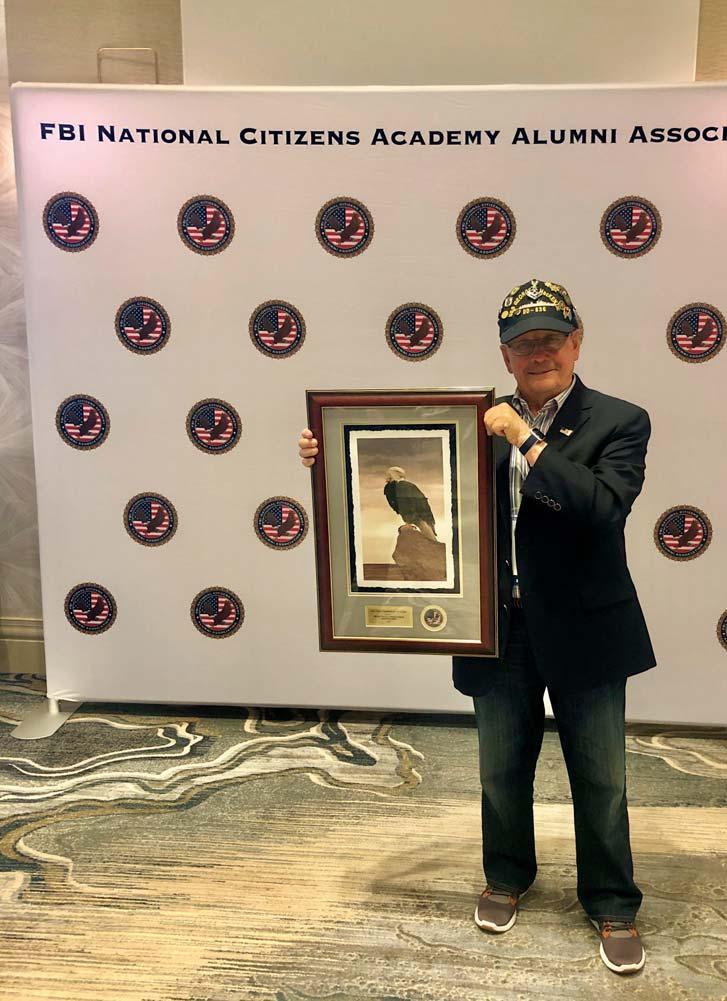
For decades, “Farmer John” and Eda proudly owned and operated a popular Half Moon Bay pumpkin and flower farm. They welcomed thousands of underserved families, took the farm experience to urban schools and even shared their flowers with dignitaries. They were awarded the 2008 President’s Volunteer Service Award for their leadership in farm practices and volunteerism. The Mullers continue to volunteer locally and donate heirloom seeds to various groups. Muller said, “A sign in
our office says, ‘If you’re not giving, you’re not living.’ We’ll keep giving, helping and serving until we’re gone.”
In 2007, Muller received an unexpected opportunity. Flying home from an EPA meeting in D.C., he struck up a conversation with a man next to him. The man happened to be an FBI agent who called Muller the next day to invite him to be a member of the FBI Citizens Academy in the San Francisco Bay region. The academy, an eight-week training program that gives local leaders an inside look at the FBI, aims to build and strengthen relationships between the FBI and communities.
“Our regional group works on anything to help the community – those in need, youth programs, elder abuse, police night out and more,” Muller said. “It’s similar to what Ag Leadership encourages.” In 2021, Muller was elected to the board. In 2022, the group was awarded the FBI’s No. 1 Volunteer Citizens Board of the Year out of 50 groups in the nation.
Muller also helped his community during the January storms, when he used his tractor to evacuate people. “Wherever we’re needed, we’re there to help.” ◆
26 Horizons Winter 2023 Alumni
“I owe all these wonderful opportunities and privileges to Ag Leadership and the support of my wife, Eda, and my family,”
–John Muller
Year 1 as a Nuffield International Farming Scholar
IIn October 2021, I was fortunate to be the first Californian to earn a Nuffield International Farming Scholarship to study a specific agricultural topic of my choosing. The aim of the scholarship is to “inspire passion in people and develop their potential to lead positive change in farming and food” with the goal of “leading positive change in farming and food.”
In March 2022, Nuffield International hosted 150 farming scholars from 15 countries at the Contemporary Scholars Conference in Norfolk and London. We discussed farming practices, food security, supply chain disruption, water shortages and the role the government has in creating agriculture policies. We had a special opportunity to meet with some dignitaries, including Secretary of State for Environment, Food and Rural Affairs George Eustice; Lord Curry of Kirkharle, a British farmer and member of Parliament; and Robbie Moore, a member of Parliament and a 2015 Nuffield scholar. We presented them with innovative public policy recommendations for agriculture in the U.K. and beyond.
One of the more impactful sessions was a video call with a Dutch farmer who has a farming operation in Ukraine. It was a unique opportunity to hear his personal account of the ongoing war and the impact the conflict was having on agriculture in the region. During the conference, we also had the opportunity to visit local farms and agricultural companies in various locations of England. A few of my favorite visits were Thatchers Cider Company in Somerset and Coleman’s Mustard plant in Norwich.
Part of being a Nuffield scholar is hosting traveling scholars and trying to set them up with contacts and meetings to help them with their study topics. So far, I have hosted eight scholars from various parts of the world. It is a great opportunity to show them my farming and wine business, along with building relationships and creating fellowship.
For my study topic, I am focusing on agrotourism. So far, I have traveled to Italy and the Middle East and am now studying in France (with plans to visit a few more regions this winter/spring).
Given the challenges for some family farms, I want to focus on how they can pivot or refocus for long-term survival, looking at strategies and examples such as collaboration with institutional investors, vertical integration, specialization and joint venture partnerships. I believe this topic is important because family farms play a critical role in our local, national and global agricultural community. I hope my research and experiences will inspire others to reevaluate their business models and improve their odds for succession and survival.

In 2023, I’ll be participating in the Global Focus Program, where a group of eight scholars will travel to five countries –visiting farms and agricultural businesses and meeting with government representatives and agricultural NGOs.
Completing my first year as a Nuffield scholar, I am fortunate to bring with me the leadership skills and awareness I learned through the Ag Leadership
By Tom Merwin (44)
Program, which I can share with fellow scholars and people I meet along the way. Nuffield is one way I can continue my lifelong leadership learning journey. There are similarities and differences between the two educational programs, but at the core, Ag Leadership and Nuffield participants have a goal of developing leaders who will make a positive impact in food and agriculture.
If anyone is interested in applying to be a Nuffield scholar, please contact me at tjmerwin@gmail.com. ◆
Merwin is the general manager and vice president of Merwin Vineyards, a multigenerational family farm, and co-founder and partner in Silt Wine Company, a winery and tasting room in Clarksburg. He also serves as president of the Clarksburg Wine Growers and Vintners Association.
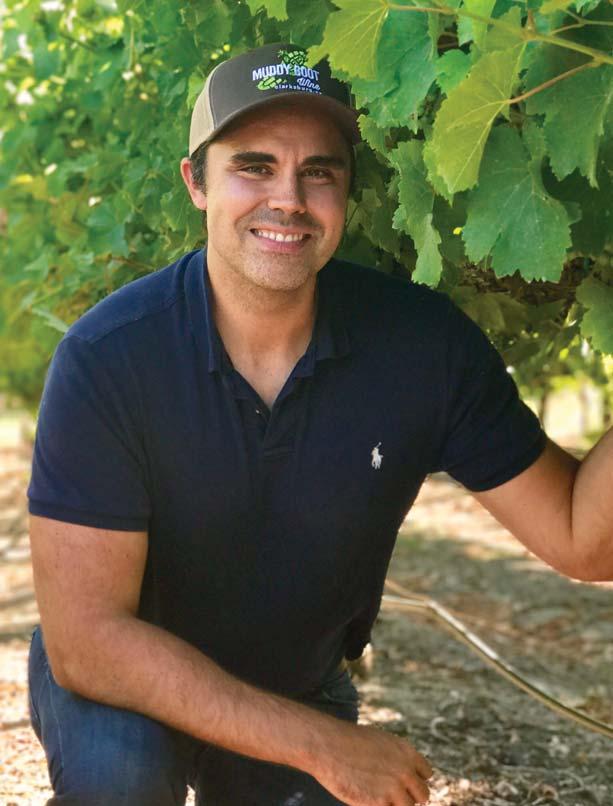
Alumni Commentary 27
Alumnus writes about his continued lifelong leadership journey as a recipient of the Nuffield International Farming Scholarship.
Alumni & Fellows News
Russel Efird (10), owner and president of Double E Farms Inc. and vice president of Efird Ag Enterprises Inc., received the 2022 Agriculturalist of the Year Award from the Fresno Chamber of Commerce, in partnership with the Fresno County Farm Bureau.
Mary-Ann Warmerdam (17) has been elected as president of the Yolo Land Trust board of directors.
Jeff Merwin (20) was named Yolo County Farm Bureau Agriculturalist of the Year.
Adán Ortega (23) was elected chairman of the board for the Metropolitan Water District of Southern California, the primary water importer and wholesaler for 19 million people in six counties.
Ken Oneto (25) received the 2022 California Young Farmers & Ranchers (YF&R) Hometown Hero Award, which recognizes Farm Bureau (FB) members who provide exceptional support to their county FB and YF&R program.
Tom Ikeda (26) was elected to the Farm Credit West board of directors for the 2022-2027 term.
John Duarte (28) was elected to the U.S. House of Representatives, representing California's 13th Congressional District. This is his first term.
Mark Gilles (31) has been promoted to Sunsweet region 1 and 2 field manager. He joined the company in 1984 as dryer manager and field representative for the Red Bluff dryer.
Naty Jaime (36) was a winner of the
Mexican Dates Competition, earning Best Personality Serving Date Palm Sector from the Khalifa International Award for Date Palm and Agricultural Innovation.
Nicholas Miller (36) received the Wine Executive of the Year Award, which is part of Wine Enthusiast’s annual Wine Star Awards.
Michele Clark (37) retired from the Yolo Land Trust in January. She served as executive director for 13 years.
Holly Dawley (38) started a new position as senior engineer at Kjeldsen, Sinnock & Neudeck (KSN) Inc., a full service civil engineering and land surveying firm.
Sarah DeForest (39) in June 2022 became the grants manager at Morrison in Chico.
James Rickert (39) was elected director-division 5 of the AndersonCottonwood Irrigation District.
Dan Sutton (40) started a new position as director of operations at Farm Supply Company.
Drew Becker (46) was elected to the Gridley Unified School Board.
Paul Crout (48) received the Western Region Certified Crop Adviser of the Year award, which recognizes a member who has shown dedicated and exceptional performance as an agronomist and leads others to promote agricultural practices that benefit farmers and the environment.
Melissa Lema (48) joined the California Milk Advisory Board marketing team as
director of producer relations to serve as liaison with California dairy families.
Jacob Cecil (51) has been promoted to Sunsweet region 1 operations manager. He joined the company in 2017.
Miranda (49) and Garrett Driver received the 2022 California Farm Bureau Excellence in Agriculture Award and received third place for the American Farm Bureau’s Excellence in Agriculture Award.
Ryan Stapleton (51) started a new position as senior grower relations manager for Ste. Michelle Wine Estates California Division.
Donglan Tian (51) started a new position as head of biologicals CPR, China at Syngenta.
Debbie Willmann (51) was appointed as an importer member to the Hass Avocado Board, an agriculture promotion group that works to maintain and expand demand for Hass avocados in the U.S. that is supervised by USDA Agricultural Marketing Service.
MULTIPLE CLASSES
Edwin Camp (15), Kevin Andrew (18), Thomas Mulholland (18), Stephen Patricio (19), A.G. Kawamura (20), Steve Danna (26), Catherine Fanucchi (30), Rob Yraceburu (HF) and Jack Vessey (34) were named to the Western Growers board.
Sal Parra (46), Mitchell Yerxa (48) and Celeste Alonzo (50) were announced as members of the Western Growers Future Volunteer Leaders Class VII.
Alumni
28 Horizons Winter 2023
In Memoriam
Mike Chrisman (2)
Mike Chrisman passed away on Oct. 11, 2022. He was born in Visalia, Calif. as the fourth-generation on the family farm and cattle ranch. He attended Mt. Whitney High School, graduating in 1962. He then attended the University of Arizona (UA), where he met and later married Barbara Paul. They had two children. Chrisman earned his degree in agronomy from UA in 1966 before going home to Tulare County to join Chrisman Ranch and pursue his passion for farming and cattle ranching. Ten years later, he returned to UA to pursue his master’s degree in agricultural education. He served as Gov. Arnold Schwarzenegger’s secretary of natural resources from 2003 until 2010. He also served as chief of staff for Assemblyman Bill Jones, and was appointed by Gov. Pete Wilson to serve as undersecretary of the California Department of Food and Agriculture. As a member of Class 2, Chrisman traveled internationally to Guatemala, Panama, Colombia, Mexico, Greece, Israel, Cyprus, Lebanon, Kuwait, Iran, U.S.S.R. and Finland and nationally to New York, Virginia, West Virginia and Washington, D.C.
Peter Orr (11)
Peter Orr passed away on Nov. 20, 2022. He majored in economics at Arizona State University. He later attended Harvard Business School and graduated at the top of his class as a Baker Scholar with an MBA and a specialty in agricultural business. Orr accepted a job at a large lettuce company, J.R. Norton. There he met Larry Eddings, with whom he later partnered to open Pacific Gold Farms, a strawberry company. He and his wife, Mary Ann, and their two daughters shared many adventures including travels to Europe and the Middle East, weekend ski trips, daily boogie boarding, and camping in Big Sur. Orr served as president
of the board of the Santa Cruz Museum of Art & History and was instrumental in the creation of Abbott Square. He also served on the board of the Monterey Jazz Festival as a financial advisor. As a member of Class 11, Orr traveled internationally to Egypt, Saudi Arabia, Jordan and Israel and nationally to Michigan, Ontario and Washington, D.C.
Rosalind “Roz” McGrath (18)
Roz McGrath passed away on Dec. 2, 2022. McGrath received a bachelor’s degree from Dominican University of California and a master’s from San Francisco State University in early childhood education. In the 1960s, McGrath began a lifelong involvement with the National Women's Organization (NOW) and many other pursuits in the fight for women’s equality. She played a key role in the establishment of Ventura County’s first shelter for domestic violence victims, the Coalition to End Domestic Violence. In addition to her nonprofit work and activism, McGrath was an early childhood educator for decades. After retiring, she continued to teach women’s history at the college level. She was fourth generation of a pioneering farm family and was deeply involved in managing and preserving the legacy of her family’s farm. As a member of Class 18, McGrath traveled internationally to Egypt, Kenya, Zimbabwe and South Africa and nationally to Illinois, Michigan and Washington, D.C.
Rob Baker (23)
Rob Baker passed away suddenly while cycling near Hart Park in Bakersfield on Nov. 25, 2022. After graduating from UC Davis, Baker returned to Bakersfield to start a family. Baker met his wife, Sally, in Thailand and their love story blossomed while studying in an ag exchange program in New Zealand. As a member of Class 23, Baker traveled internationally to Paraguay, Peru,
Chile and Ecuador and nationally to Georgia, South Carolina and Washington, D.C.
Dawit Zeleke (27)
Dawit Zeleke passed away on Oct. 10. 2022. He served on CALF’s fellow selection committees and mentored many individuals into the program. As a farmer and a fierce conservationist, Zeleke was able to turn divides between conservation and agriculture into strong bonds and shared goals. Over the arc of his career, he led conservation partnerships across California. Zeleke was integral to the protection of the wetlands of the Cosumnes River, he helped establish new forests along the Sacramento River and he saw through the 20-year Hamilton City Project. He led the effort to make The Nature Conservancy Staten Island a model for sustainable, wildlife friendly agriculture and reduced emissions farming. Additionally, he curated the Sierra Valley Preserve to be a haven for both people and wildlife, down to the Visitor Center’s “bird-proof glass.” Zeleke is survived by his wife, Cori Ong. As a member of Class 27, he traveled internationally to Ethiopia, Uganda and South Africa and nationally to Mississippi, Tennessee and Washington, D.C.
FRIENDS OF AG LEADERSHIP
Dr. Julian Whaley passed away in August 2022. Whaley was an Honorary Fellow and former CALP core faculty member at Fresno State.
Dr. Allen Christensen passed away in September 2022. Christensen was an Honorary Fellow, former CALP campus coordinator and dean of the Cal Poly Pomona College of Agriculture.
Barry Ross passed away in October 2022. Ross was CALF’s interim CEO from April to September 2005.
29 Alumni
The California Agricultural Leadership Foundation and Alumni Council share condolences on the passing of these alumni and friends.
Time, Talent, Treasure
By Kelli Coffey CALF Donor Relations Manager
JEFF COLOMBINI (28)
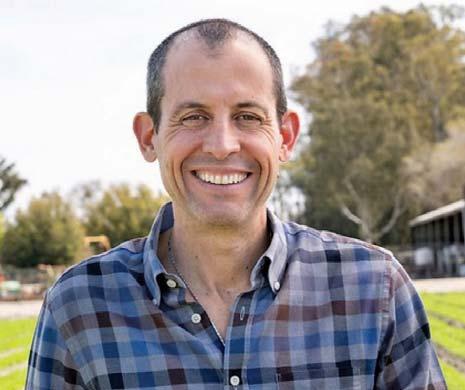
When the Alumni Conference dates were announced, Jeff Colombini started encouraging his classmates to register. He followed up with check-ins and friendly nudges when classmate Ellen Way replied with an idea for a class sponsorship. Colombini recalls, “She said, ‘I’m giving. Who else is in?’ and everyone else started replying the same.” Colombini shared fundraising updates, and with their combined efforts, 20 classmates came together for a generous sponsorship. Colombini’s goal for the next conference? “Get a minimum of 50% of the class there. Life and other things keep everyone busy, but it’s always so nice to reconnect.” As the Class 28 liaison, he finds joy in keeping everyone connected. “Going to the conference after not having a lot of contact the last couple of years made me remember how much I learned from my classmates. Everyone is so bright, intelligent and has had different life experiences. That’s when you can really learn from people.” Colombini has been supporting Ag Leadership in various ways over several years and said, “[The program] was life changing, but it wouldn’t have been life changing had it not been for the people who did the same before me – donated their time and resources to make it what it is. I’m paying it forward.” ◆
CANNON MICHAEL (39)
Cannon Michael came back to Bowles Farming in 1998 to work with his uncle, Phillip Bowles (16). Since then, it’s been important for Michael to keep the operation an open door for the community and those who want to learn more about farming. “I want people to come out to the farm and learn for themselves, whether it's legislators, regulators, NGOs or school kids. I try to highlight the positives of agriculture and the collaborative nature of the folks who work in it.” As an alumnus of Ag Leadership, Michael consistently gives back to the foundation. “We found so much value in [the program] and hearing other people’s experiences. You find a way to make time to give back and make the program stronger for future classes.” Whether Michael is reviewing applications, writing recommendations, sitting on an Ag Leadership committee or making a donation, he said he enjoys “taking opportunities to stay involved.” When asked what he would want a potential applicant to know, Michael said, “It’s worth the time. There’s never a right time, but it’s worth the commitment and you’ll come out better on the other side.”
ELLEN WAY (28)
Ellen Way saw the Ag Leadership Alumni Conference dates and knew she wanted to rally Region 11 and Class 28 alumni for sponsorships. “I always tell people any amount is appreciated,” said Way. A simple email encouraged alumni from her class and region to sponsor the conference and both groups responded generously. The icing on the cake was reuniting with many members of her class at the conference. “I haven’t seen most of my classmates in 20 years, so it was great to reconnect and now I want to have a class reunion.” Way is already looking forward to gathering both her class and region in 2023. What makes giving back to Ag Leadership special for her? “I consider my Ag Leadership experience a gift and I appreciated every minute of it. Many of the things I learned and what I was exposed to guide me still to this day. I support Ag Leadership so the program will be there for future generations.”
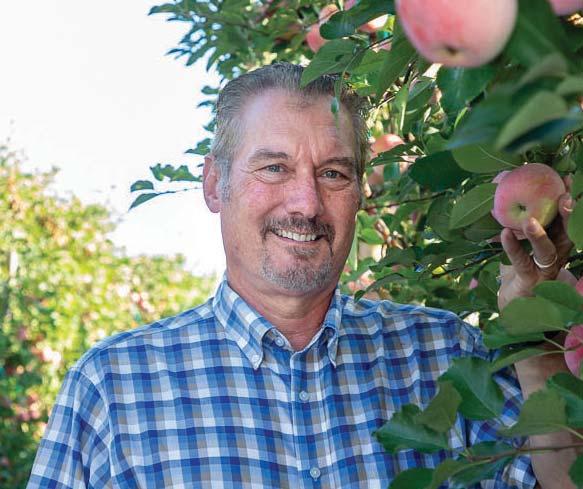
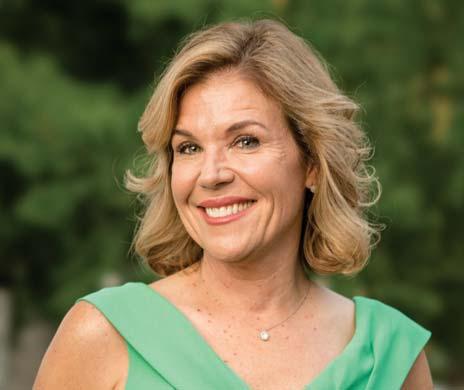
Giving
◆
◆ 30 Horizons Winter 2023
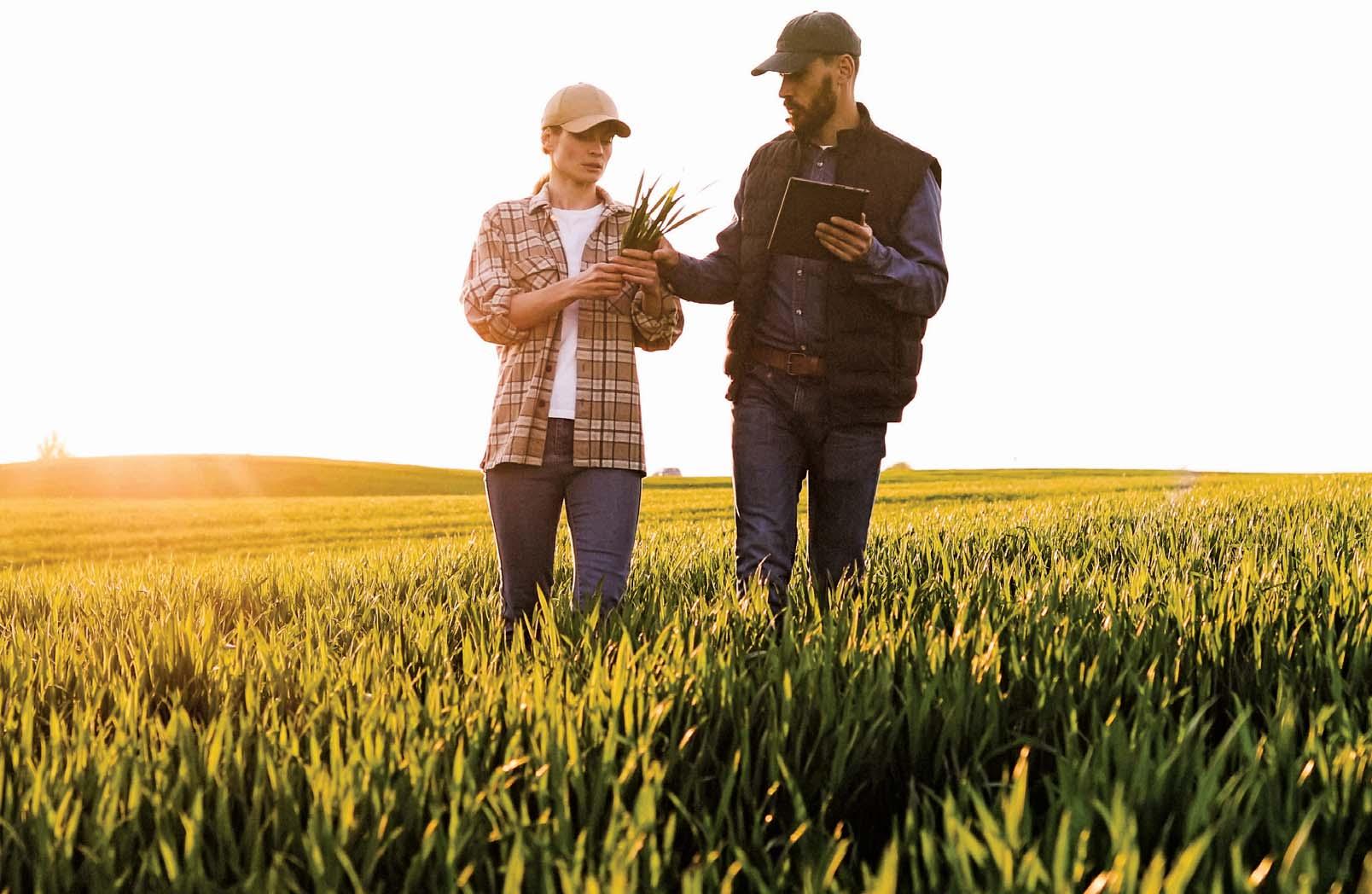


AgWest Farm Credit | American AgCredit CoBank | Fresno Madera Farm Credit Community Driven. Agriculture Focused. SCAN ME WE ARE FARM CREDIT A network of customer-owned associations supporting Growing leaders who make a difference 80 Garden Court, Suite 270 Monterey, CA 93940 NONPROFIT ORG U.S. POSTAGE PAID Permit #288 ANAHEIM, CA














































 Isaacson
Isaacson
















 By Heather Mulholland (44) Alumni Council Interim Chair
By Heather Mulholland (44) Alumni Council Interim Chair












































































